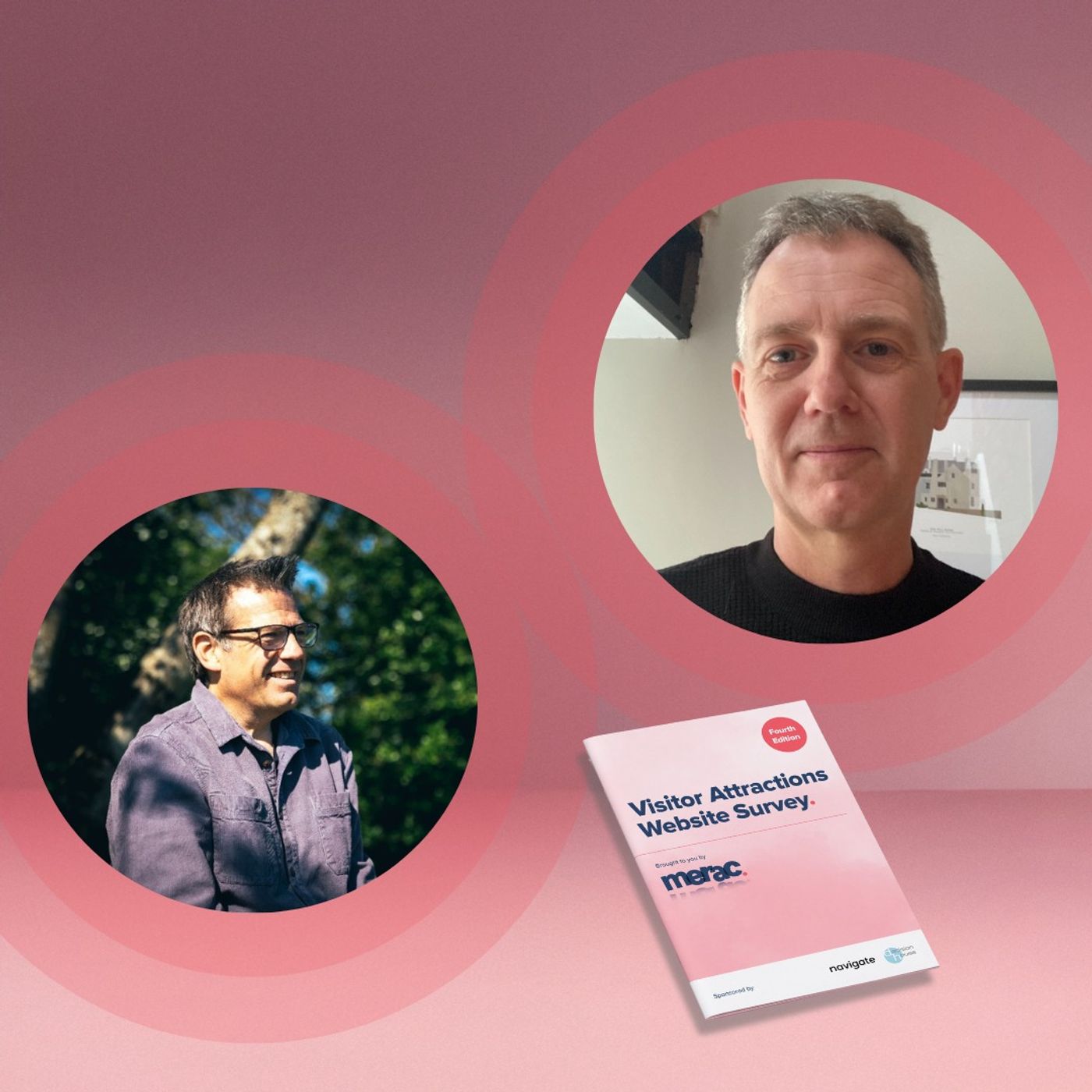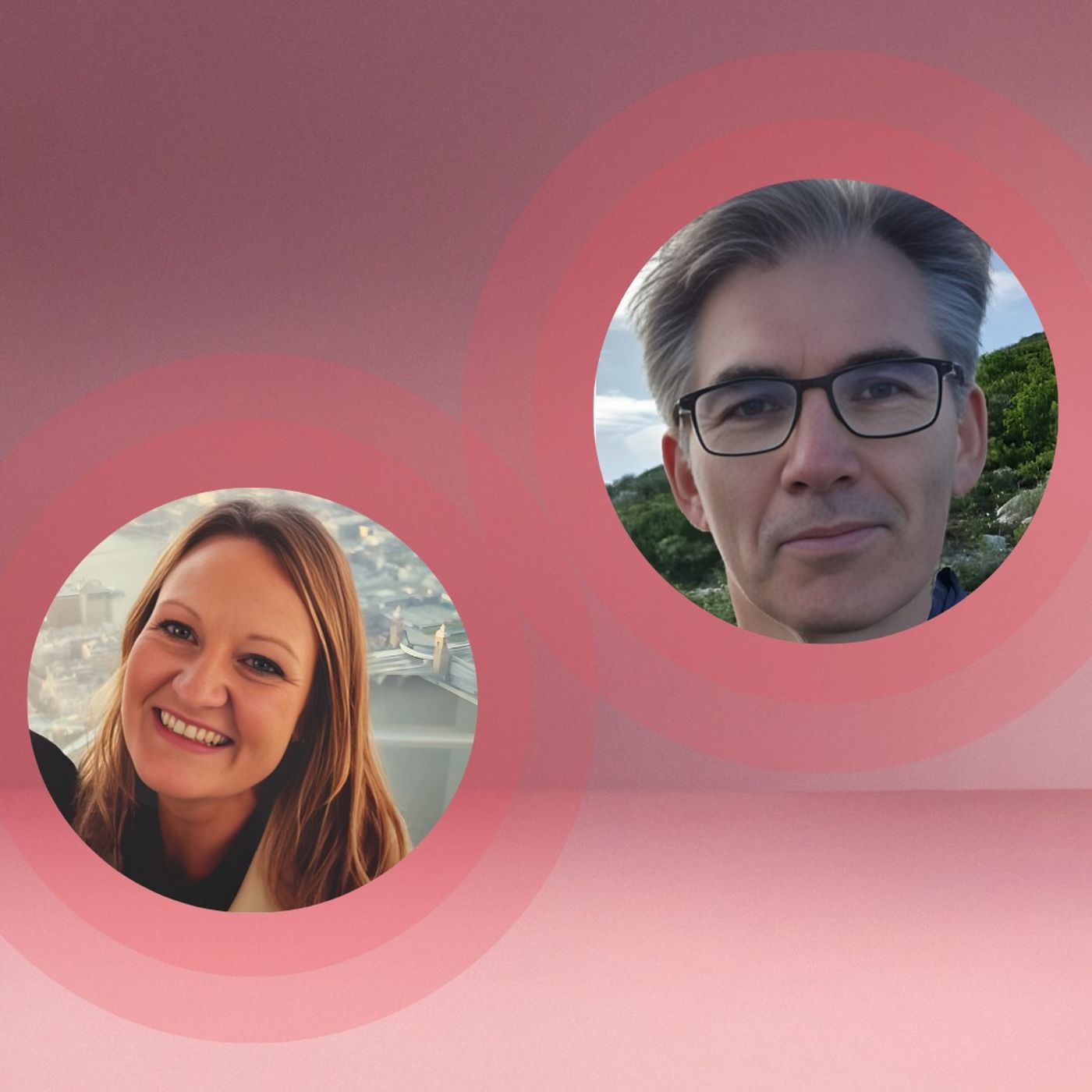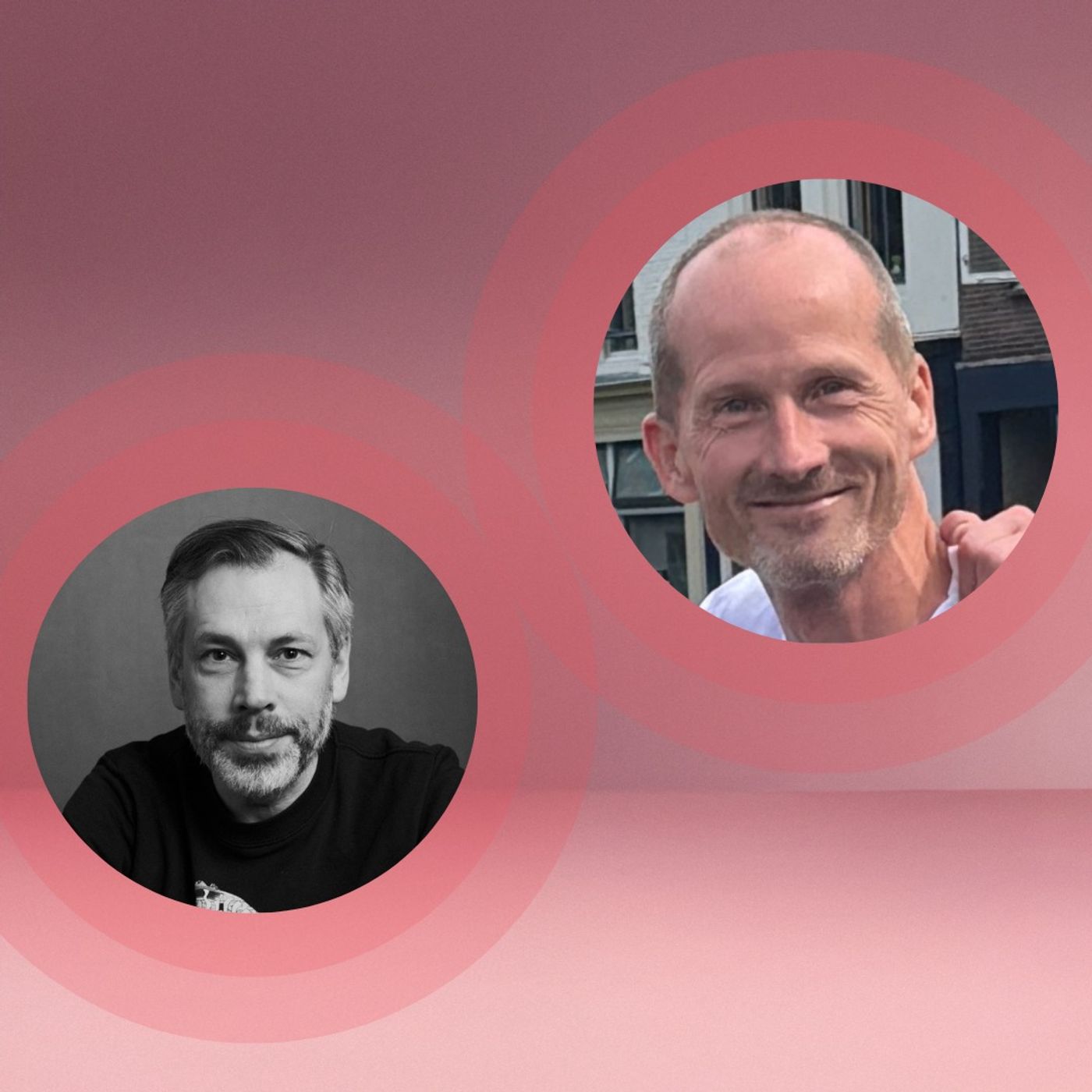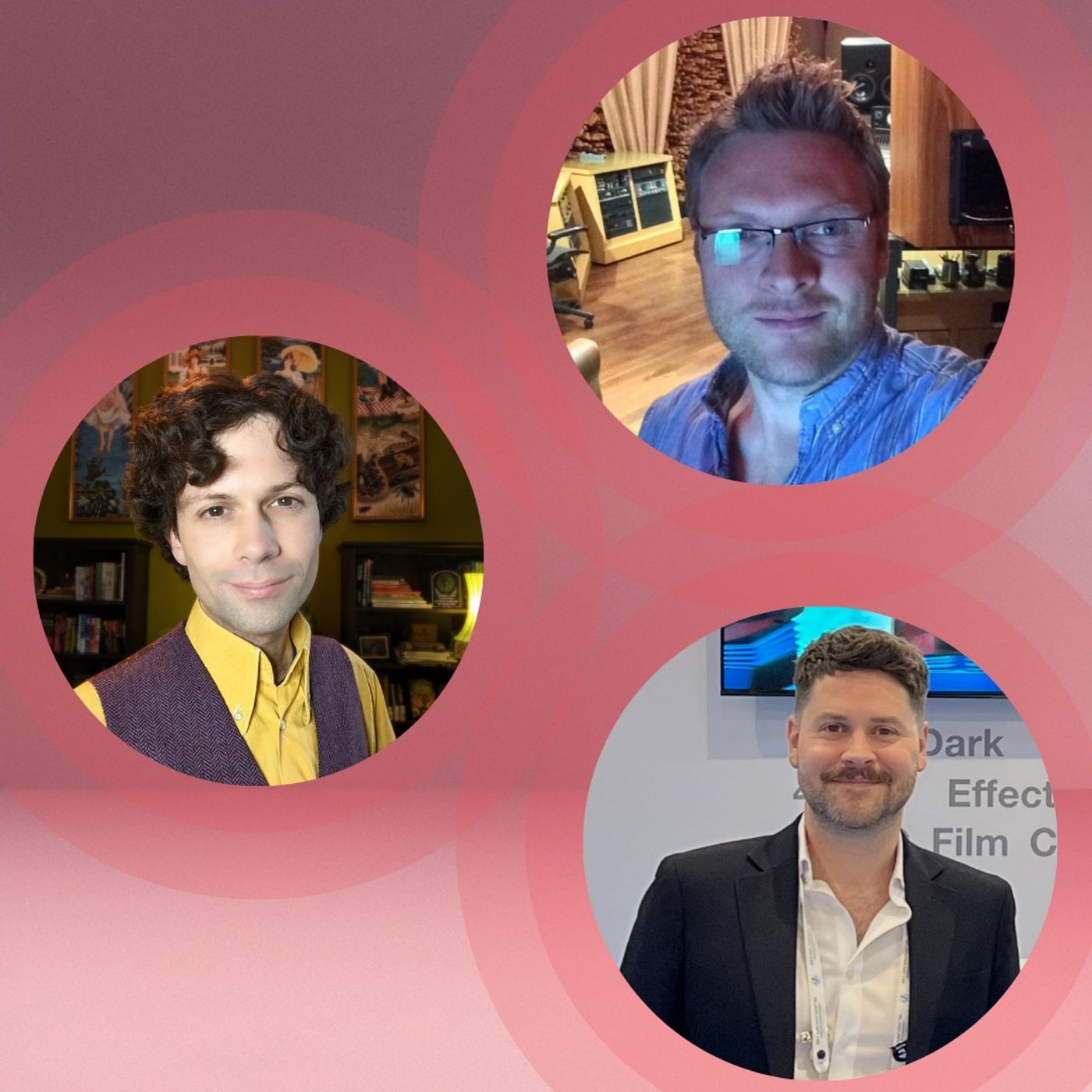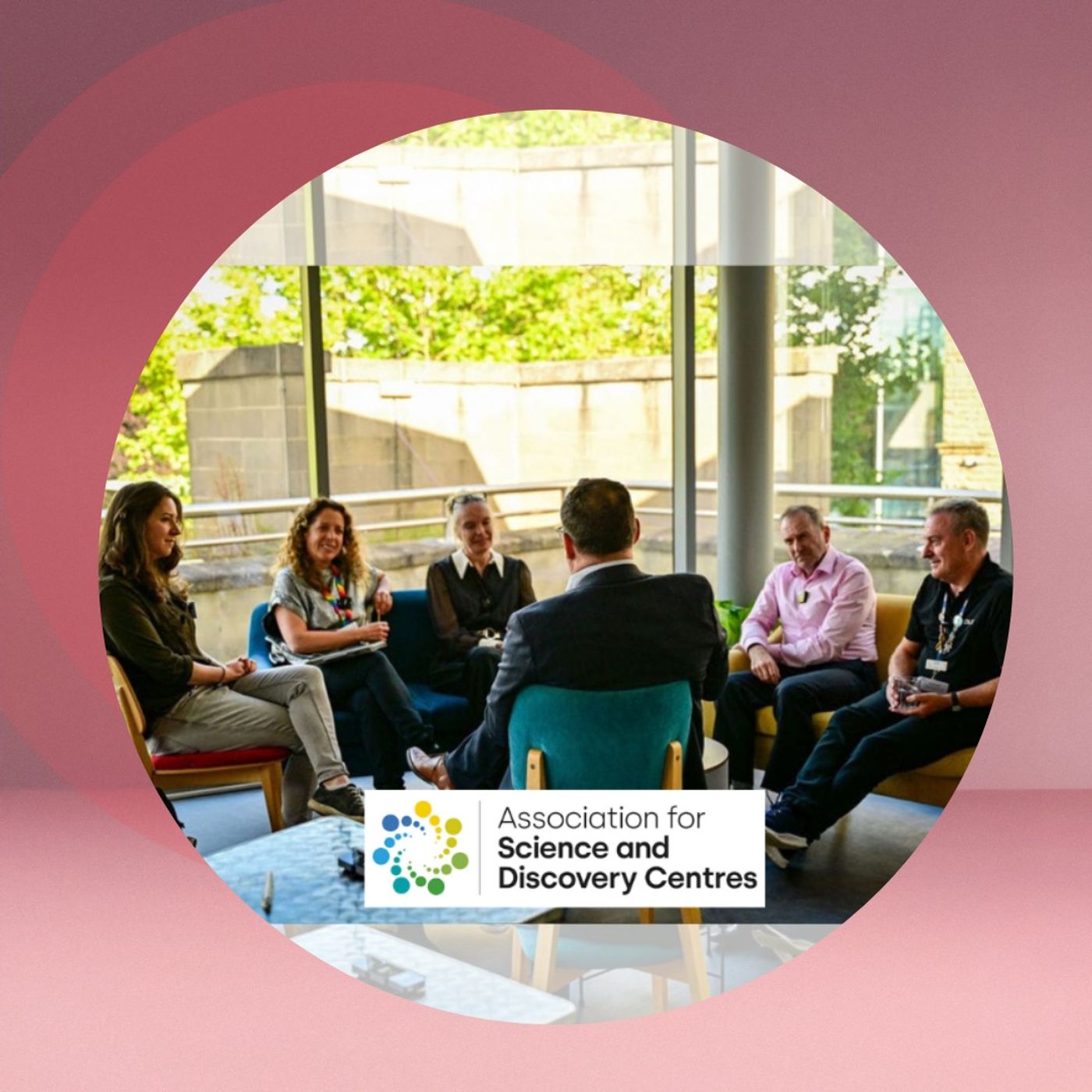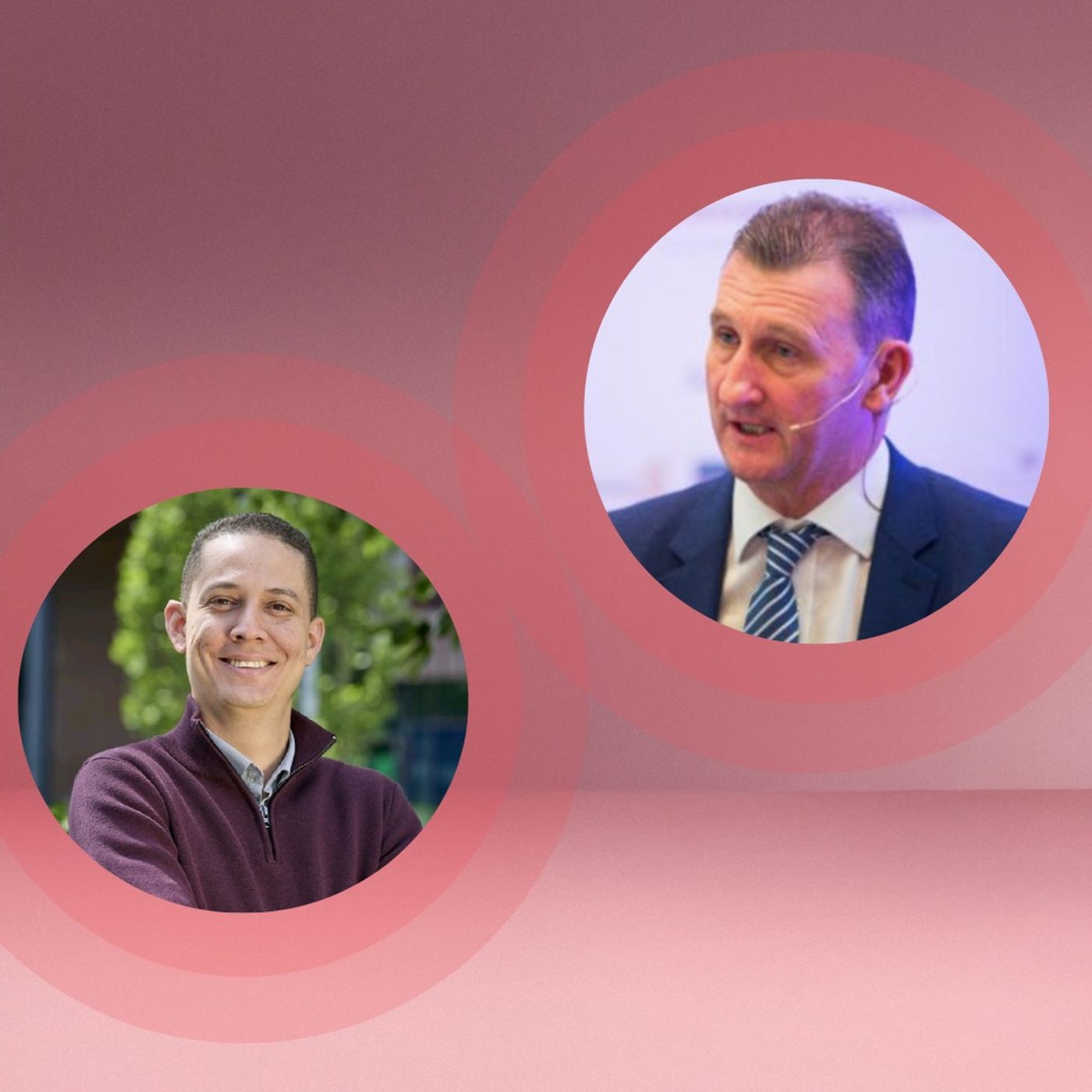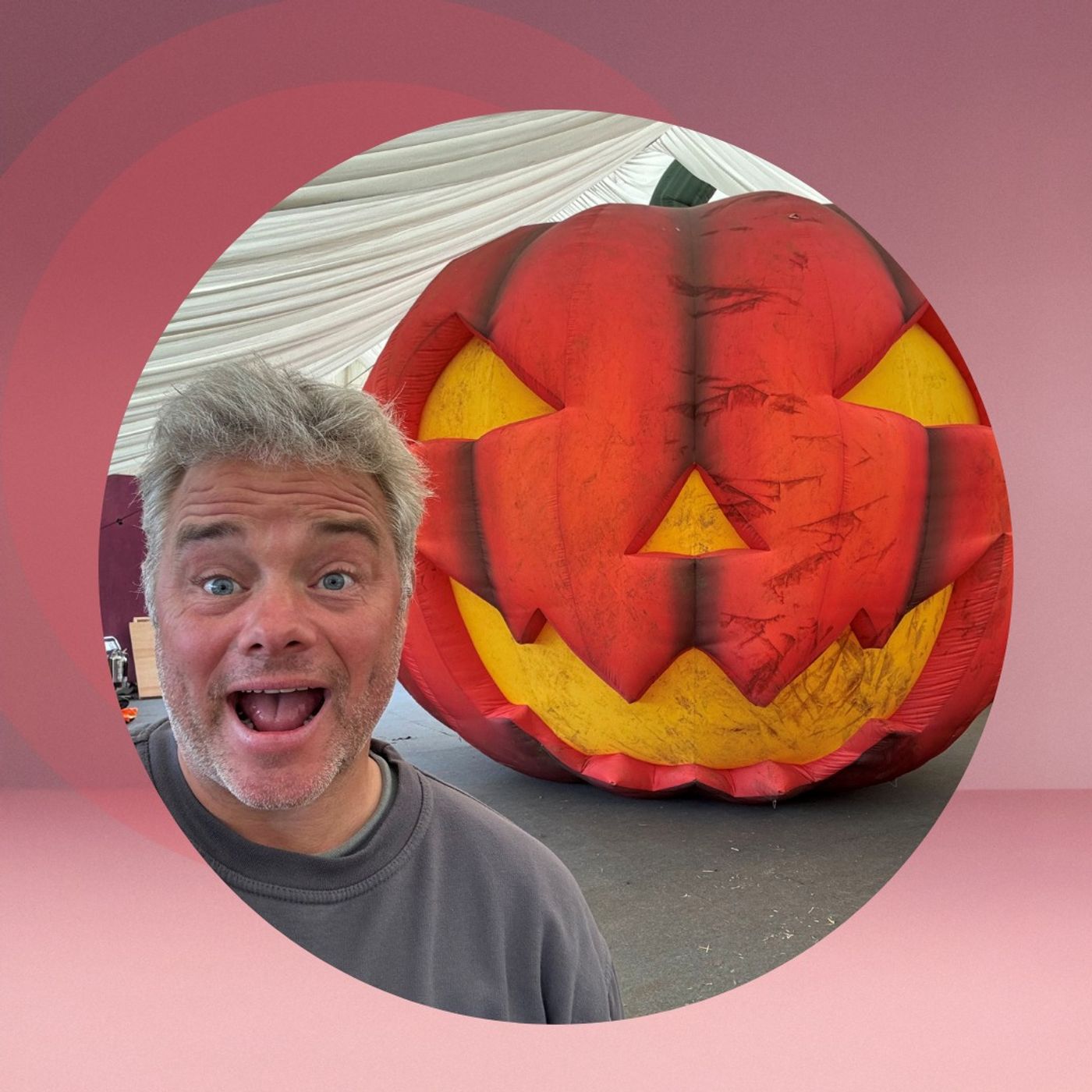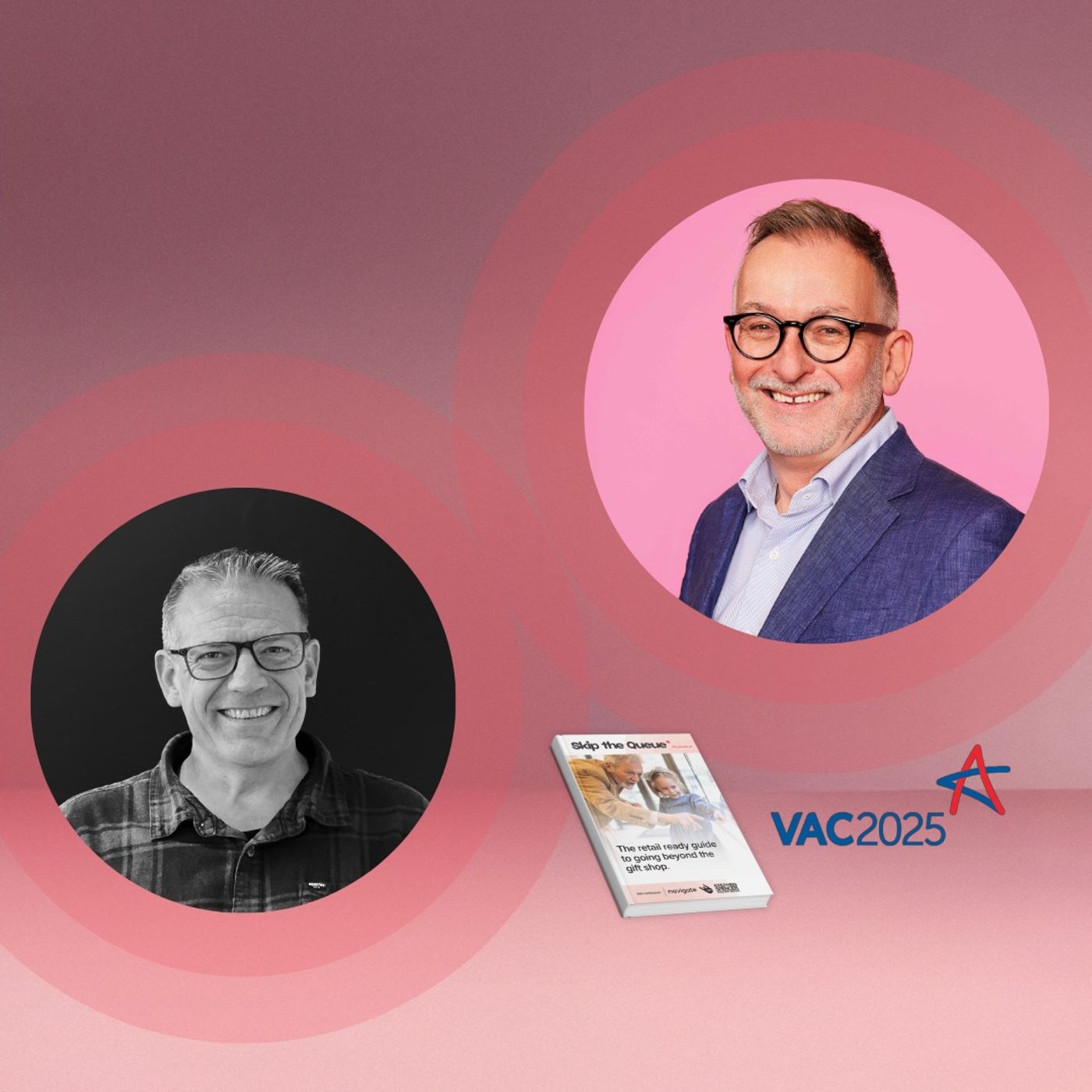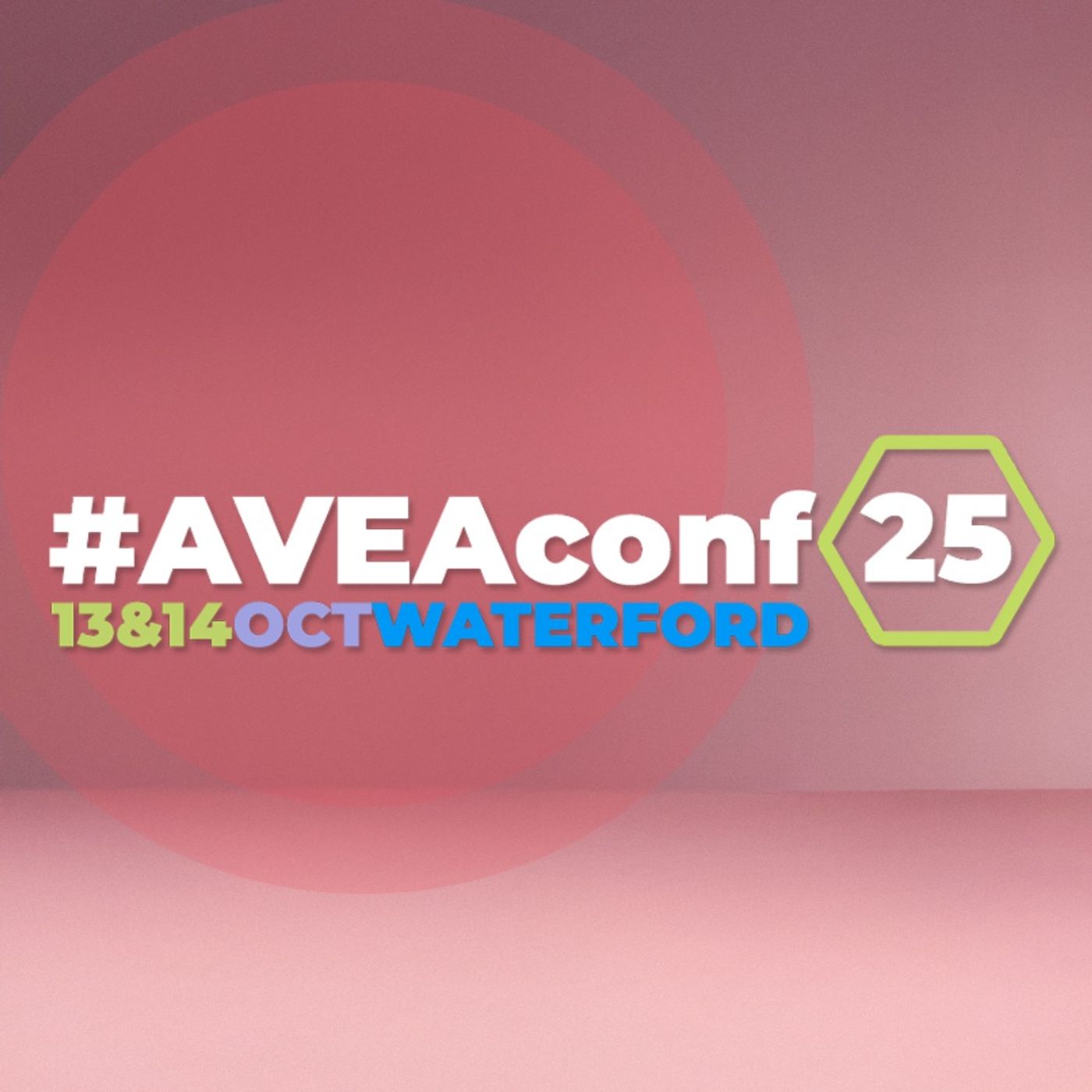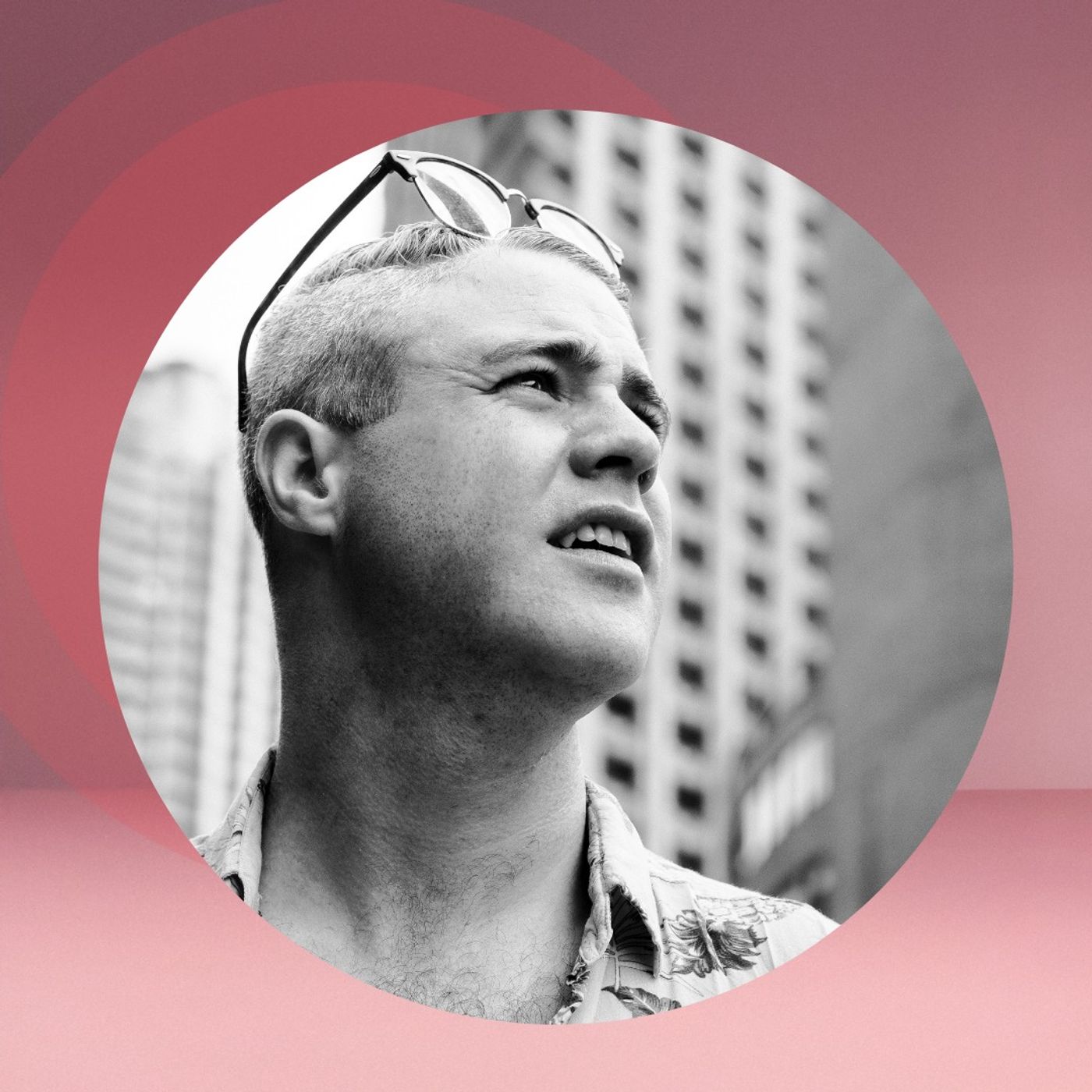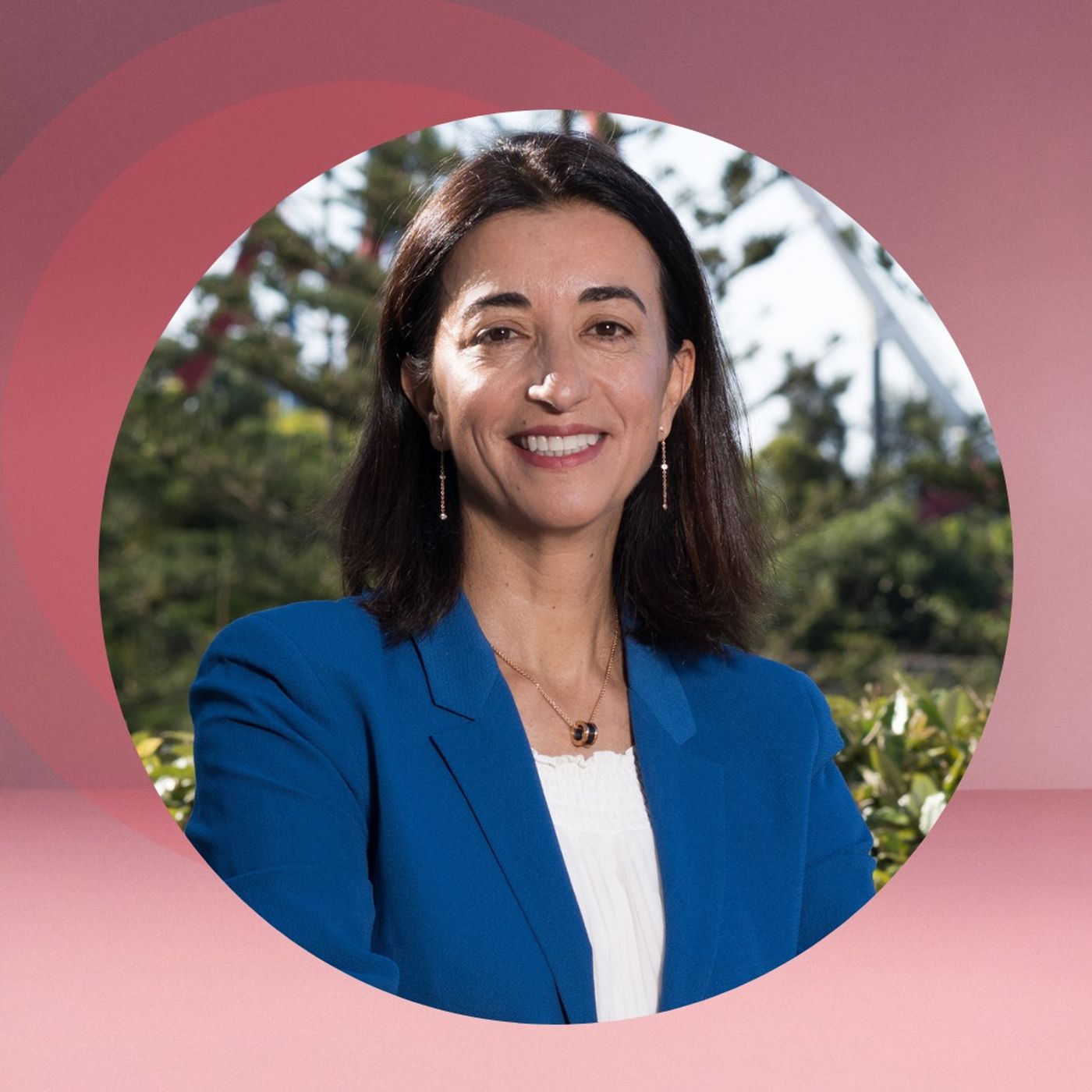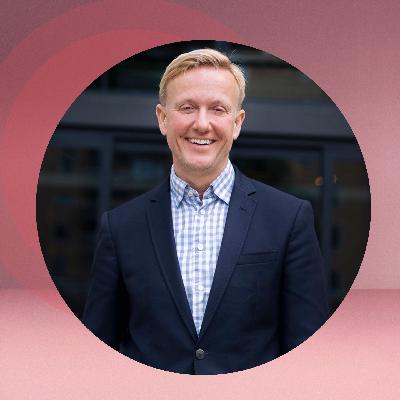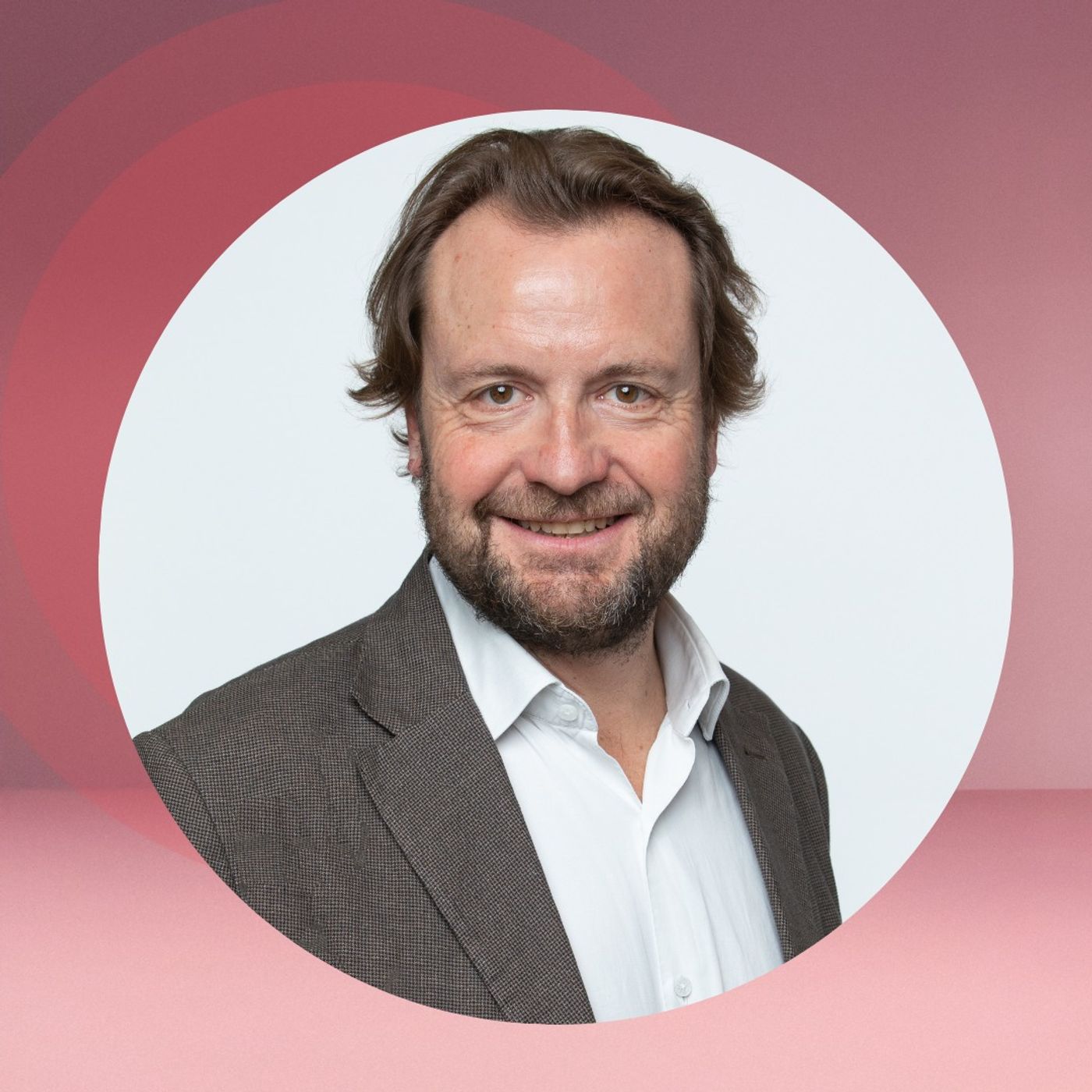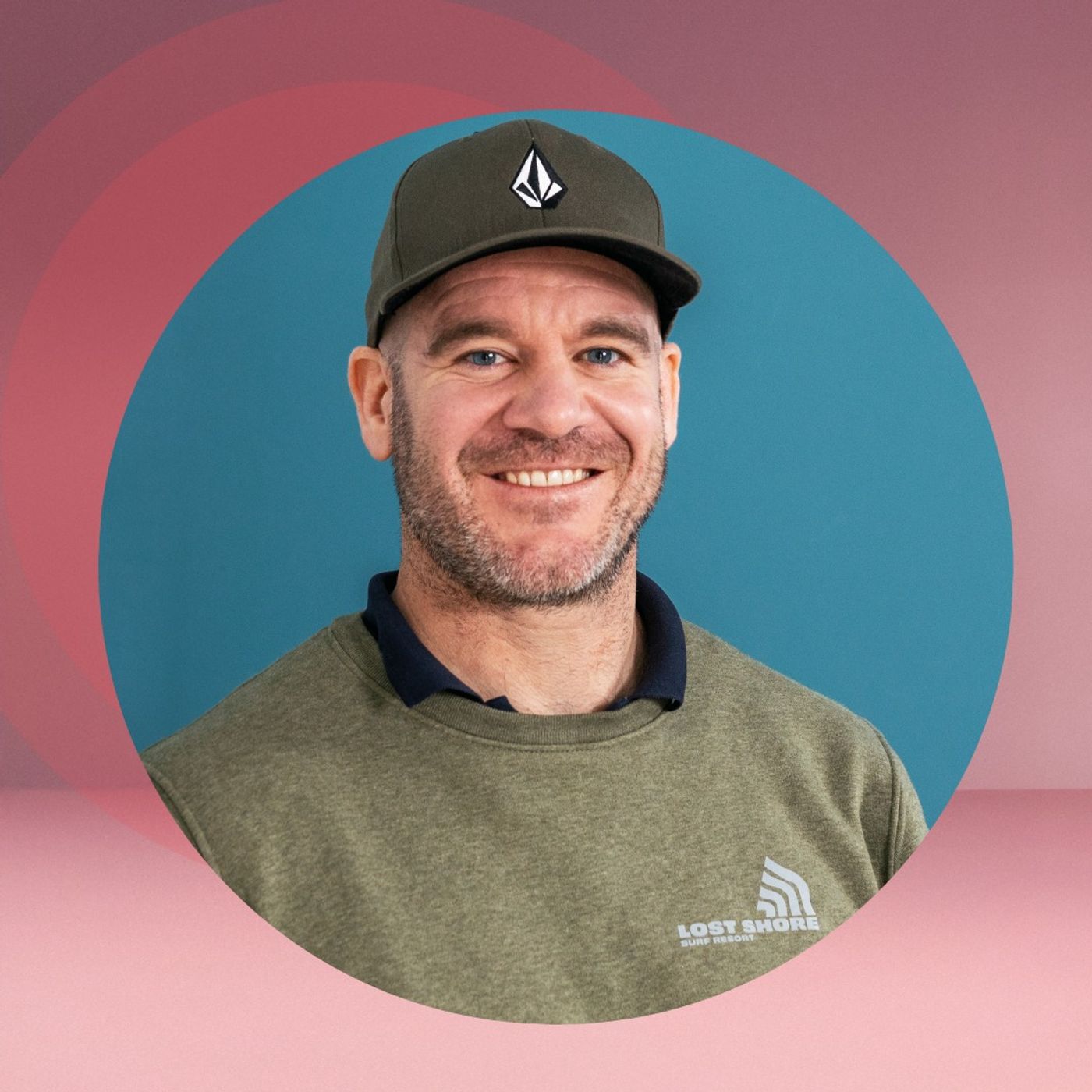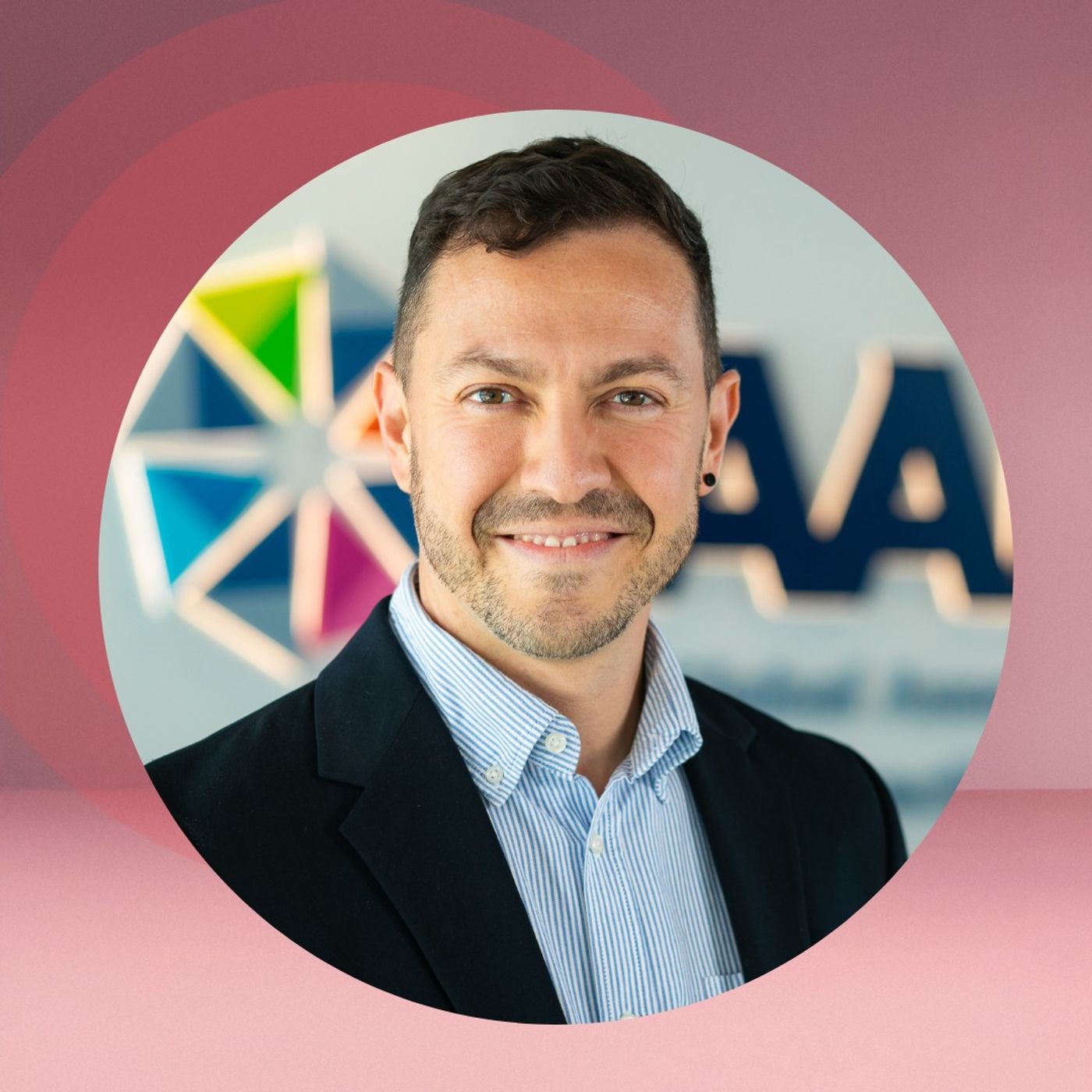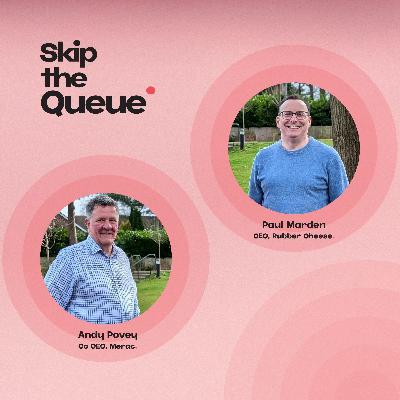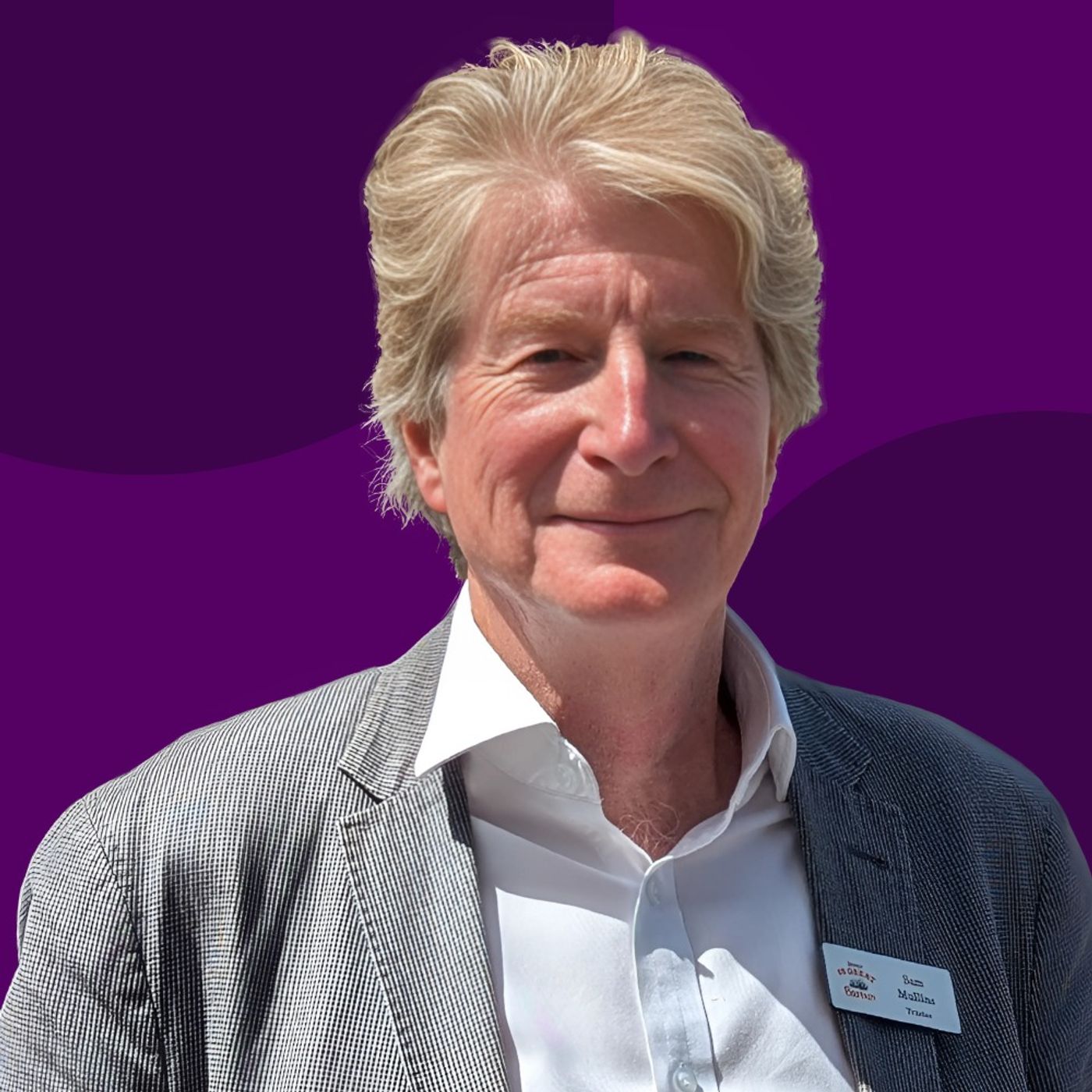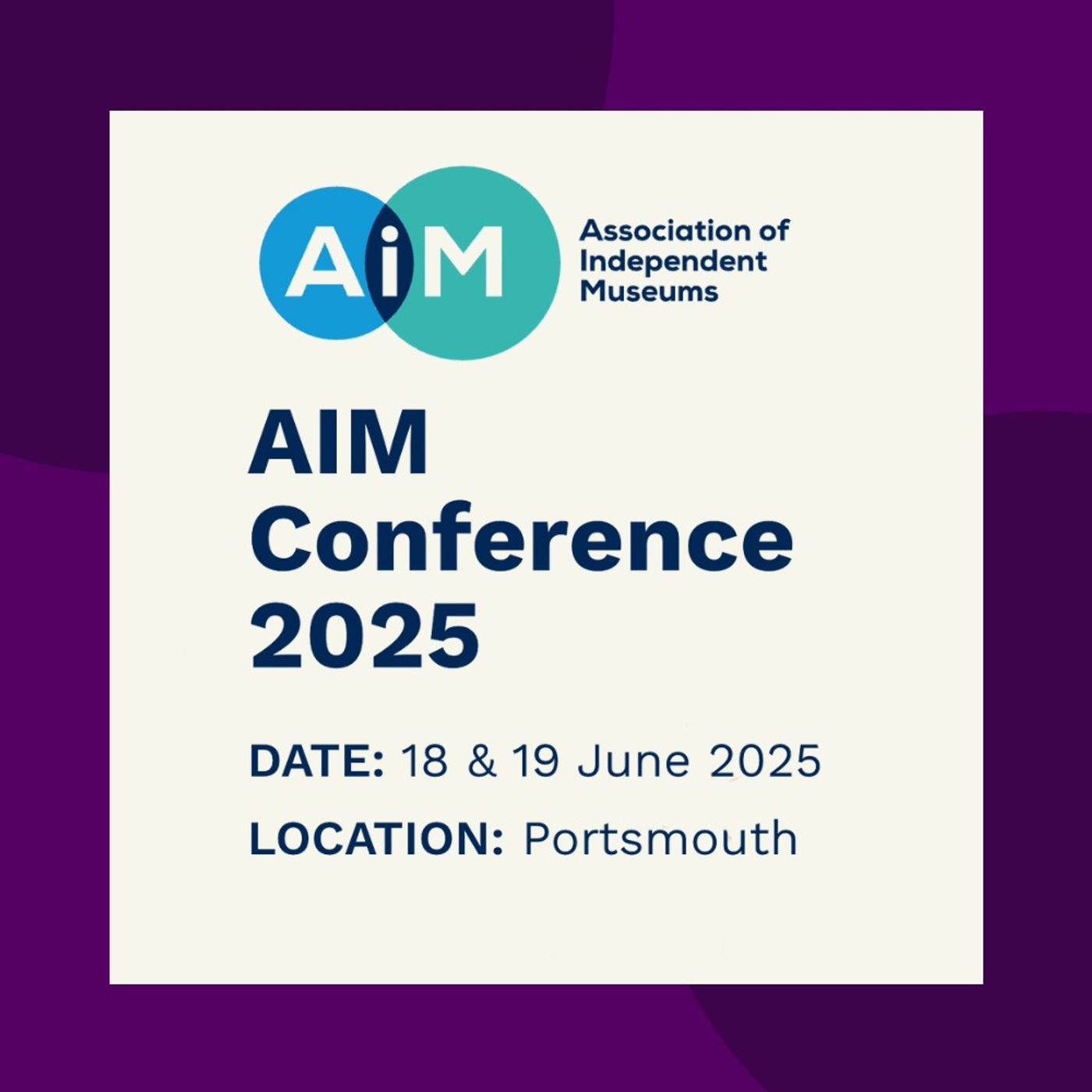Discover Skip the Queue
Skip the Queue

Skip the Queue
Author: Rubber Cheese
Subscribed: 19Played: 442Subscribe
Share
© 2025 Crowd Convert
Description
Skip the Queue is for visitor attraction owners, directors and suppliers who want to improve their organisations and deliver a better experience for their guests. Each episode we speak with inspiring industry experts who share their knowledge of what really makes an attraction successful.
This podcast is brought to you by Merac. We're here to help attractions unlock growth with innovative solutions, expert insights, and customer-first strategies.
This podcast is brought to you by Merac. We're here to help attractions unlock growth with innovative solutions, expert insights, and customer-first strategies.
145 Episodes
Reverse
In this episode of Skip the Queue, Andy Povey explores how visitor attractions can improve website performance in 2026 using insight from the 4th Visitor Attractions Website Survey.Andy is joined by two contributors to the report:Simon Jones, Managing Director at NavigateSteve Mills, Director at Decision HouseThey break down what visitors expect from attraction websites, how digital behaviour is changing, and where operators should focus to improve conversion, visibility and trust.Key Topics Discussed:AI search and how visitors are using it without realisingMobile-first design and poor mobile performanceWebsite speed and its impact on conversionVisitor confidence, risk and late booking behaviourPricing transparency and hidden feesFlexible ticketing and weather-driven decisionsReviews, social proof and AI-driven discoveryUsing first-party data more effectivelyThe rise of repeat visitors over first-time visits Show References: Download The Visitor Attractions Website Survey Report - https://www.merac.co.uk/download-the-visitor-attractions-survey Simon Jones - Managing Director of Navigatehttps://navigate.agency/https://www.linkedin.com/in/simontjones/ Steve Mills, Director at Decision Househttps://decisionhouse.co.uk/https://www.linkedin.com/in/steve-mills-0528661b/ Mentioned:Olly Reed of Navigate Agency: https://www.linkedin.com/in/olly-reed/ Skip the Queue is brought to you by Merac. We provide attractions with the tools and expertise to create world-class digital interactions. Very simply, we're here to rehumanise commerce. Your host is Andy Povey.If you like what you hear, you can subscribe on iTunes, Spotify, and all the usual channels by searching Skip the Queue or visit our website SkiptheQueue.fm.
We have launched our brand-new playbook: ‘The Retail Ready Guide to Going Beyond the Gift Shop’ — your go-to resource for building a successful e-commerce strategy that connects with your audience and drives sustainable growth. Download your FREE copy here
This special Monday release of Skip the Queue marks Blue Monday, often labelled the most depressing day of the year. But is Blue Monday real, or just clever marketing?Andy Povey is joined by Emma Newell, Chair of the TEA Wellness Council, to unpack the truth behind Blue Monday and explore a much bigger issue facing the attractions industry: burnout.Key Topics Covered: The truth about Blue MondayWhat burnout really looks likeThe Window of ToleranceWhy the attractions industry is uniquely challengingWhy burnout often feels “normal” in themed entertainmentSeasonal living and energy managementLeadership, boundaries and responsibilityThe role of the TEA Wellness Council Show References: Emma Newell, TEA Chair, and Strategy, Culture & Leadership Coach at Magnetic Moon Coachinghttps://www.teaconnect.org/https://magneticmooncoaching.com/https://www.linkedin.com/in/emma-newell-magneticmooncoachingltd/ Skip the Queue is brought to you by Merac. We provide attractions with the tools and expertise to create world-class digital interactions. Very simply, we're here to rehumanise commerce. Your host is Andy Povey.If you like what you hear, you can subscribe on iTunes, Spotify, and all the usual channels by searching Skip the Queue or visit our website SkiptheQueue.fm.If you've enjoyed this podcast, please leave us a five star review, it really helps others find us. And remember to follow us on LinkedIn.
We have launched our brand-new playbook: ‘The Retail Ready Guide to Going Beyond the Gift Shop’ — your go-to resource for building a successful e-commerce strategy that connects with your audience and drives sustainable growth. Download your FREE copy here
Step into the woods with us for a behind-the-scenes look at one of the UK’s most iconic winter light trails: Windsor Great Park Illuminated.In this episode of Skip the Queue, Paul Marden is joined on-site by Rob Paul, Design Director at LCI Productions, and Kathryn Stafford, Senior Events Manager at IMG Events, to discuss how this 2.2km light trail continues to evolve, surprise and delight hundreds of thousands of visitors each year.Rob and Kathryn reveal how they transform a natural woodland into a breathtaking immersive world — all while protecting wildlife and crafting stories that keep guests coming back year after year.You’ll discover:What’s new for the 2025 trailThe creative process behind reinventing the experience annuallyThe challenges of designing large-scale AV in a protected natural landscapeHow iconic Instagram moments are balanced with quieter storytellingBrand-new characters, narratives and festive surprisesTrends in repeat visitation and evolving guest expectations Show References: Windsor Great Park Illuminated https://www.windsorilluminated.com/tickets/ Rob Paul - Design Director, LCI Productionshttps://www.linkedin.com/company/lci-productions-ltd/https://www.linkedin.com/in/rob-paul-7a4ab417/ Kathryn Stafford - Senior Events Manager, IMG Events / PWRhttps://www.linkedin.com/company/img/https://www.linkedin.com/in/kathryn-stafford-7504241b/ Skip the Queue is brought to you by Merac. We provide attractions with the tools and expertise to create world-class digital interactions. Very simply, we're here to rehumanise commerce. Your host is Paul Marden.If you like what you hear, you can subscribe on iTunes, Spotify, and all the usual channels by searching Skip the Queue or visit our website SkiptheQueue.fm.If you've enjoyed this podcast, please leave us a five star review, it really helps others find us. And remember to follow us on LinkedIn.
We have launched our brand-new playbook: ‘The Retail Ready Guide to Going Beyond the Gift Shop’ — your go-to resource for building a successful e-commerce strategy that connects with your audience and drives sustainable growth. Download your FREE copy here
In this episode of Skip the Queue, Andy Povey is joined by Melissa Oviedo (TEA), Martin Palicki (InPark Magazine), and Ed Chih (ECA) to discuss the TEA Global Experience Index and trends shaping the attractions industry in 2026.Key Topics Covered:Overview of the TEA Global Experience Index and global attendance trendsShifts in guest expectations and evolving experiencesRise of immersive IP-driven experiencesImportance of reinvestment for long-term successStrategies to compete for guest attention and engagementRole of storytelling and brand integration in attractionsGrowth of cruise lines and location-based entertainmentInsights for operators, developers, designers, and storytellers Show References: Download the TEA Global Experience Index™ Report: https://www.teaconnect.org/tea-global-experience-indextm Melissa Oviedo, Chief Executive Officer, Themed Entertainment Association (TEA)https://www.teaconnect.org/ https://www.linkedin.com/in/melissa-oviedo-ruminot-90a63228/ Martin Palicki, Publisher of InPark Magazinehttps://www.inparkmagazine.com/https://www.linkedin.com/in/inparkmagazine/Edmond Chih, Director, Entertainment & Cultural Advisors (ECA)https://www.entertainmentandculture.com/ Skip the Queue is brought to you by Crowd Convert. We provide attractions with the tools and expertise to create world-class digital interactions. Very simply, we're here to rehumanise commerce. Your host is Andy Povey.If you like what you hear, you can subscribe on iTunes, Spotify, and all the usual channels by searching Skip the Queue or visit our website SkiptheQueue.fm.If you've enjoyed this podcast, please leave us a five star review, it really helps others find us. And remember to follow us on LinkedIn.
We have launched our brand-new playbook: ‘The Retail Ready Guide to Going Beyond the Gift Shop’ — your go-to resource for building a successful e-commerce strategy that connects with your audience and drives sustainable growth. Download your FREE copy here
Andy Povey is joined by two guests at the forefront of this space: Rob Liddell, Executive Producer at BBC Studios Science Unit, and Simon Clarke, Creative Director and Founder of Moonraker VFX. Fresh from announcing their new creative partnership, they’re here to share what happens when world-class storytelling meets cutting-edge visual effects in the world of immersive experiences. Show References: Rob Liddell, Executive Producer at BBC Studios Science Unithttps://productions.bbcstudios.com/our-production-brands/the-science-unit/https://www.linkedin.com/in/rob-liddell-171639137/ Simon Clarke, Creative Director and Founder of Moonraker VFXhttps://moonrakervfx.com/https://www.linkedin.com/in/simon-clarke-07ba9146/ Skip the Queue is brought to you by Crowd Convert. We provide attractions with the tools and expertise to create world-class digital interactions. Very simply, we're here to rehumanise commerce. Your host is Andy Povey.If you like what you hear, you can subscribe on iTunes, Spotify, and all the usual channels by searching Skip the Queue or visit our website SkiptheQueue.fm.If you've enjoyed this podcast, please leave us a five star review, it really helps others find us. And remember to follow us on LinkedIn.
We have launched our brand-new playbook: ‘The Retail Ready Guide to Going Beyond the Gift Shop’ — your go-to resource for building a successful e-commerce strategy that connects with your audience and drives sustainable growth. Download your FREE copy here
Today’s attractions need to do more than look amazing — they need to feel, sound, and even smell unforgettable. In this episode, we explore how to go beyond the visual and bring audio, scent and motion to the forefront of the guest experience. Paul Marden is joined by Liam Findlay, Theme Park and Museum Scenting Consultant from AromaPrime Themed Scents; David Wakefield Director and Co-founder of On the Sly; and Matt Clarkson, Creative Director of Simworx. Show References:Liam R. Findlay – Theme Park & Museum Scenting Consultant, AromaPrime Themed ScentsWhy smell is a form of mind control, with Liam Findlayhttps://aromaprime.com/https://www.linkedin.com/in/liam-r-findlay/David Wakefield – Director & Co-founder, ON THE SLYhttp://www.onthesly.comhttps://www.linkedin.com/in/davidonthesly/Matt Clarkson – Creative Director, Simworxhttp://www.simworx.co.ukhttps://www.linkedin.com/in/matt-clarkson-a42a95124/ Skip the Queue is brought to you by Crowd Convert. We provide attractions with the tools and expertise to create world-class digital interactions. Very simply, we're here to rehumanise commerce. Your host is Paul Marden.If you like what you hear, you can subscribe on iTunes, Spotify, and all the usual channels by searching Skip the Queue or visit our website SkiptheQueue.fm.If you've enjoyed this podcast, please leave us a five star review, it really helps others find us. And remember to follow us on LinkedIn.
We have launched our brand-new playbook: ‘The Retail Ready Guide to Going Beyond the Gift Shop’ — your go-to resource for building a successful e-commerce strategy that connects with your audience and drives sustainable growth. Download your FREE copy here
In today’s episode, recorded live at the National Science and Media Museum during the Association for Science and Discovery Centres Annual Conference 2025, we’re exploring what’s on the horizon for Science and Discovery Centres right now, over the next 5 years, and looking even further ahead to the next 25 years.It’s a throwback to the break between Seasons 6 and 7, when Paul Marden was invited to the ASDC National Conference in Bradford, at the height of the Bradford City of Culture celebrations. It was Paul’s first time in Bradford, but not his first ASDC conference, and this one was an absolute standout.At the end of the first day, Paul gathered a brilliant panel of delegates to unpack the conference’s central theme: the Now, Next, and Future for Science Centres.Joining Paul on the panel were:Jo Quinton-Tulloch, Director, National Science and Media MuseumDavid Jones, Community Engagement Manager, International Centre for LifeNatalie Whitehead, Founder and Director, Exeter Science CentreStephen Breslin, CEO, Glasgow Science Centre and Chair of the Association for Science and Discovery Centres ASDCShaaron Leverment, CEO, Association for Science and Discovery Centres ASDCLet’s head back to Bradford for a fascinating conversation about innovation, engagement, and the long-term vision shaping the future of science discovery in the UK. Show references: Jo Quinton-Tulloch - Director, National Science and Media Museumhttps://www.scienceandmediamuseum.org.uk/https://www.linkedin.com/in/jo-quinton-tulloch-22503791/David Jones, Community Engagement Manager, International Centre for Lifehttps://www.life.org.uk/https://www.linkedin.com/in/david-jones-031570198/Natalie Whitehead, Founder and Director, Exeter Science Centrehttps://exetersciencecentre.org/https://www.linkedin.com/in/natalie-whitehead-17323ba9/Stephen Breslin, CEO, Glasgow Science Centre and Chair of ASDChttps://www.glasgowsciencecentre.org/https://www.linkedin.com/in/stephen-breslin-b331135b/Shaaron Leverment - CEO, Association for Science and Discovery Centres ASDChttps://www.sciencecentres.org.uk/events/asdc-conference-2025/https://www.linkedin.com/in/shaaron-leverment-74b53b50/ Skip the Queue is brought to you by Crowd Convert. We provide attractions with the tools and expertise to create world-class digital interactions. Very simply, we're here to rehumanise commerce. Your host is Paul Marden.If you like what you hear, you can subscribe on iTunes, Spotify, and all the usual channels by searching Skip the Queue or visit our website SkiptheQueue.fm.If you've enjoyed this podcast, please leave us a five star review, it really helps others find us. And remember to follow us on LinkedIn.
We have launched our brand-new playbook: ‘The Retail Ready Guide to Going Beyond the Gift Shop’ — your go-to resource for building a successful e-commerce strategy that connects with your audience and drives sustainable growth. Download your FREE copy here
This week on Skip The Queue we explore the science behind ensuring good visitor experiences, by looking at the role data has to play in thisJoining me are two experts in this field, Professor Jim Deegan, economist, tourism policy expert, and founder of the National Centre for Tourism Policy Studies at the University of Limerick, and Ernesto Sánchez- Batista, an expert in destination planning and digital transformation.Together, they have been instrumental in developing a new Tourism Data Dashboard. This has been utilised to transform the visitor experience at The Cliffs of Moher, one of Ireland’s most iconic landmarks.Let’s find out how, and what they’ve achieved. We have launched our brand-new playbook: ‘The Retail Ready Guide to Going Beyond the Gift Shop’ — your go-to resource for building a successful e-commerce strategy that connects with your audience and drives sustainable growth.Download your FREE copy here: https://pages.crowdconvert.co.uk/skip-the-queue-playbookSkip the Queue is brought to you by Crowd Convert. We provide attractions with the tools and expertise to create world-class digital interactions. Very simply, we're here to rehumanise commerce. Your host is Paul Marden.If you like what you hear, you can subscribe on iTunes, Spotify, and all the usual channels by searching Skip the Queue or visit our website SkiptheQueue.fm.If you've enjoyed this podcast, please leave us a five star review, it really helps others find us. And remember to follow us on LinkedIn.Show references: Jim Deegan - PHD Scholar of Cliffs of Moer Projecthttps://www.cliffsofmoher.ie/https://www.irishexaminer.com/business/economy/arid-41721501.htmlhttps://www.linkedin.com/in/jim-deegan-94438b2a/Jim Deegan is the Director of the National Centre for Tourism Policy Studies (NCTPS), University of Limerick(UL), a member of the Economics Department( Head of department, 2011-2016) ) and Professor of Tourism Policy. He is an economist by training and his research interests and publications are in all facets of public policy for tourism. Jim is a highly cited author in tourism economics/policy papers and he acts as a referee for all the top rated international journals in tourism and has served on editorial boards of numerous journals that have included the Cornell Quarterly and Tourism Economics. As director of the NCTPS at UL he has raised more than €6 million through project research and philanthropic donations that has funded research scholarships for more than 25 students to study tourism at postgraduate level. Jim has undertaken project research on behalf of the World Bank, The European Commission, Eurostat, The Irish Government, Failte Ireland, Tourism Ireland, the Marine Institute, the Law Society and many other public and private sector organisations across the world. He was the project lead for the team that delivered Ireland’s first Tourism Satellite Account in 2004.Jim has served on numerous public and private sector committees/boards on tourism issues over the last 25 years and was a founding member of the Business Tourism Forum of Failte Ireland from 2004 and was appointed to the Board of The National Tourism Development Authority( Failte Ireland) by the Minister for Transport, Tourism and Sport in 2013. He is currently a board member of the Birr Scientific and Heritage Foundation. Jim was the founding chairman and a shareholder in Treaty Radio Ltd that was sold to UTV PLC for €15.7million in 2002. Ernesto Batista Sánchez - PHD Scholar of Cliffs of Moer Projecthttps://www.ul.ie/business/departments/department-economics/research/national-centre-tourism-policy-studieshttps://www.linkedin.com/in/ebats/Ernesto Batista Sánchez is a PhD researcher at the National Centre for Tourism Policy Studies (NCTPS), Kemmy Business School, University of Limerick, Ireland. Prior to this, he worked as an Assistant Professor in Tourism programmes at the University of Holguín, Cuba. He graduated with a first-class honours MA in International Tourism from the University of Limerick in 2020 and holds a PhD from the University of Holguín (2024). His research explores the application of technology and data analysis in tourism.
We have launched our brand-new playbook: ‘The Retail Ready Guide to Going Beyond the Gift Shop’ — your go-to resource for building a successful e-commerce strategy that connects with your audience and drives sustainable growth. Download your FREE copy here
We’ve got a frightfully good episode for you today on Skip The Queue. We’re taking a trip to the dark side… where screams echo, shadows stir and the scare actors never seem to take a night off.We’re joined by the team behind Avon Valley’s FEAR Scream Park, a family-run adventure park with more than 35 years of experience, and now home to one of the UK’s most terrifying Halloween events.Winners of Best Event Entertainment at the 2024 Thrill Nation Halloween Awards, Avon Valley has mastered the art of blending immersive theatre, multi-sensory scares and spine-tingling attractions that keep thrill seekers coming back for more.From scare zones to scream-worthy shows, and even a ‘scaredy-cat lanyard’ for those who’d rather keep the monsters at arm’s length, there’s something for everyone who dares to step inside.Let’s unmask what’s new this year at FEAR… We have launched our brand-new playbook: ‘The Retail Ready Guide to Going Beyond the Gift Shop’ — your go-to resource for building a successful e-commerce strategy that connects with your audience and drives sustainable growth.Download your FREE copy here: https://pages.crowdconvert.co.uk/skip-the-queue-playbookSkip the Queue is brought to you by Crowd Convert. We provide attractions with the tools and expertise to create world-class digital interactions. Very simply, we're here to rehumanise commerce. Your host is Andy Povey.If you like what you hear, you can subscribe on iTunes, Spotify, and all the usual channels by searching Skip the Queue or visit our website SkiptheQueue.fm.If you've enjoyed this podcast, please leave us a five star review, it really helps others find us. And remember to follow us on LinkedIn.Show references: FEAR Avon Valley Scream Parkhttps://www.fearscreampark.co.uk/Avon Valley Adventure Parkhttps://avonvalley.co.uk/Doug Douglas on LinkedInhttps://www.linkedin.com/in/douglas-douglas-87826038/National Farm Attractions Network (NFAN)https://www.farmattractions.net/Halloween and Scare Attraction Association (HSAA)https://www.hsaa.uk/Avon Valley Adventure Park is a family business with 35 years of experienceWinner of Best Event Entertainment at the 2024 Thrill Nation Halloween Awards, Avon Valley’s FEAR Scream Park offers a unique and thrilling experience for Halloween and adrenaline lovers across the UK and beyond. Re-opening on Friday 10th October, FEAR Scream Park will welcome visitors for 11 nights of scares. Boasting two zones, five multi-sensory and immersive scare attractions, it will also play host to fire and laser shows, street entertainment and a ‘bolt on’ scare experience known as The Exorcism. Visitors will be challenged to hold their nerve as they navigate the attractions and enjoy a night that is as thrilling as it is terrifying.FEAR welcomes all who dare to experience its horrors but for those who prefer a less intense night the park offers a 'scaredy-cat lanyard,' which lets actors know to keep their distance allowing all guests to have a bloody good night. FEARless at Avon Valley Scream ParkFor those on half term, younger scare-lovers can experience the award-winning FEAR Scream Park with FEARless, a frightfully fun experience that invites under 16 year olds to navigate a tamed-down version of four attraction mazes with no major scares (but still plenty of spooks) along the way. With street performers, food stalls and fairground rides, the event is running for select daytime slots from Saturday 26th - Thursday 31st October.
We have launched our brand-new playbook: ‘The Retail Ready Guide to Going Beyond the Gift Shop’ — your go-to resource for building a successful e-commerce strategy that connects with your audience and drives sustainable growth. Download your FREE copy here
Paul Marden and Andy Povey head to the VAC 2025 Conference at the Queen Elizabeth II Centre in Westminster, London, to explore the evolving world of attraction retail and e-commerce.With special participation from Skip the Queue’s founding host, Kelly Molson, the conversation delves into practical steps for creating seamless, authentic and profitable online experiences.Joining him are industry experts Stephen Spencer, Director of Stephen Spencer + Associates, and Simon Jones, Managing Director of Navigate Agency, to discuss how attractions can create e-commerce gift shops that truly enhance the visitor experience.They discuss the Visitor Attraction Playbook and explore how storytelling, sustainability and smart integration can transform your retail offer from an afterthought into a powerful brand extension.This episode also marks the launch of our brand-new playbook: ‘The Retail Ready Guide to Going Beyond the Gift Shop’ — your go-to resource for building a successful e-commerce strategy that connects with your audience and drives sustainable growth.Download your FREE copy here: https://pages.crowdconvert.co.uk/skip-the-queue-playbook Skip the Queue is brought to you by Rubber Cheese, a digital agency that builds remarkable systems and websites for attractions that helps them increase their visitor numbers. Your hosts are Paul Marden and Andy Povey.If you like what you hear, you can subscribe on iTunes, Spotify, and all the usual channels by searching Skip the Queue or visit our website SkiptheQueue.fm.If you've enjoyed this podcast, please leave us a five star review, it really helps others find us. And remember to follow us on LinkedIn. Show references: Stephen Spencer, Ambience Director of Stephen Spencer + Associateshttps://www.stephenspencerassociates.com/https://www.linkedin.com/in/customerexperiencespecialist/Simon Jones, Managing Director of Navigate Agencyhttps://www.navigate.agency/https://www.linkedin.com/in/simontjones/Kelly Molson, Skip the Queue’s founding host, Agency Advisor, Kelly Molson Consultinghttps://www.kellymolson.co.uk/ https://www.linkedin.com/in/kellymolson/
We have launched our brand-new playbook: ‘The Retail Ready Guide to Going Beyond the Gift Shop’ — your go-to resource for building a successful e-commerce strategy that connects with your audience and drives sustainable growth. Download your FREE copy here
Paul Marden heads to the AVEA conference in front of a LIVE audience to find out why gift shops are such an important part of the attraction mix. Joining him is Jennifer Kennedy, Retail Consultant, JK Consulting and Michael Dolan, MD of Shamrock Gift Company. They discuss why your gift shop is an integral part of your brand and why it needs to be just as good as the experience you have on offer. This coinsides with the launch of our brand new playbook: ‘The Retail Ready Guide To Going Beyond The Gift Shop’, where you can find out exactly how to improve your online offering to take your ecommerce to the next level. Download your FREE copy here: https://pages.crowdconvert.co.uk/skip-the-queue-playbookBut that's not all. Paul walks the conference floor and speaks to:Susanne Reid, CEO of Christchurch Cathedral Dublin, on how they are celebrating their millennium anniversary - 1000 years!Charles Coyle, Managing Director, Emerald Park, on how they are bringing AI integrations to enhance their booking processesRay Dempsey, General Manager of The Old Jamerson Distillery on how they offering more accessible touring optionsIt's a mega episode and one you'll not want to miss. Skip the Queue is brought to you by Rubber Cheese, a digital agency that builds remarkable systems and websites for attractions that helps them increase their visitor numbers. Your host is Paul Marden.If you like what you hear, you can subscribe on iTunes, Spotify, and all the usual channels by searching Skip the Queue or visit our website SkiptheQueue.fm.If you've enjoyed this podcast, please leave us a five star review, it really helps others find us. And remember to follow us on LinkedIn. Show references: Jennifer Kennedy — Founder, JK Consultinghttps://jkconsultingnyc.com/https://www.linkedin.com/in/jennifer-kennedy-aba75712/Michael Dolan — Managing Director, Shamrock Gift Companyhttps://www.shamrockgiftcompany.com/Catherine Toolan — Managing Director, Guinness Storehouse & Global Head of Brand Homes, Diageohttp://diageo.comhttps://www.linkedin.com/in/catherinetoolan/Máirín Walsh — Operations Manager, Waterford Museumhttps://www.waterfordtreasures.com/Dean Kelly — Photography & Visitor Experience Specialist https://www.wearephotoexperience.com/https://www.linkedin.com/in/dean-kelly-1259a316/Charles Coyle — Managing Director, Emerald Parkhttps://www.emeraldpark.ieSusanne Reid — CEO, Christ Church Cathedral Dublinhttp://www.christchurchcathedral.iehttps://www.linkedin.com/in/susannereid/Ray Dempsey — General Manager, Jameson Distilleryhttps://www.jamesonwhiskey.com/en-ie/visit-our-distilleries/jameson-bow-street-distillery-tour/https://www.linkedin.com/in/ray-dempsey-37a8665a/
We have launched our brand-new playbook: ‘The Retail Ready Guide to Going Beyond the Gift Shop’ — your go-to resource for building a successful e-commerce strategy that connects with your audience and drives sustainable growth. Download your FREE copy here
This week on Skip the Queue, we’re stepping into the turret and turning up the tension, as we explore one of the UK’s most talked-about immersive experiences.Paul Marden is joined by Neil Connolly, Creative Director at The Everywhere Group, who have brought The Traitors Live Experience to life. With over 10 million viewers watching every betrayal, backstab and banishment on the BBC show, expectations for the live version were nothing short of murderous.So, how do you even begin to transform a TV juggernaut into a thrilling, guest-led experience? Let’s find out who’s playing the game… and who’s about to be banished…Skip the Queue is brought to you by Rubber Cheese, a digital agency that builds remarkable systems and websites for attractions that helps them increase their visitor numbers. Your host is Paul Marden.If you like what you hear, you can subscribe on iTunes, Spotify, and all the usual channels by searching Skip the Queue or visit our website SkiptheQueue.fm.If you've enjoyed this podcast, please leave us a five star review, it really helps others find us. And remember to follow us on LinkedIn. Show references: The Traitors Live website: https://www.thetraitorslive.co.uk/https://www.immersiveeverywhere.com/Neil’s LinkedIn: https://www.linkedin.com/in/neil-connolly-499054110/ Neil Connolly is a creative leader of design and production teams focused on development, production and installation of live theatre, entertainment, multi-media and attractions for the themed entertainment industry worldwide.Neil began his career as a performer, writer, producer & artist in Londons alternative theatre/art scene. It was during this time Neil developed a love and passion for story telling through the platform of interactive playable immersive theatre.Having been at the vanguard of playable & immersive theatre since 2007, Neil had a career defining opportunity in 2019 when he devised, wrote & directed an immersive experience as part of Sainsbury's 150th Birthday Celebrations. Making him the only immersive theatre & game maker in the world to have HRH Elizabeth Regina attend one of their experiences.In a distinguished career spanning 20 years, Neil has brought that passion to every facet of themed entertainment in the creative direction and production of attractions such as; Handels Messiah, Snowman & The Snowdog, Peppa Pig Surprise Party, Traitors Live, The Crystal Maze Live Experience, Tomb Raider Live Experience & Chaos Karts, an AR go-kart real life battle. Other clients and activations include: Harrods, Sainsbury’s, Camelot/The National Lottery, Samsung, Blenheim Palace, Land Rover and Warner Brothers.Neil has worked across 4 continents for many years with private individuals; designing, producing and delivering live entertainment on land, sea & air. A world without boundaries requires freethinking.Neil is currently working with Immersive Everywhere on creative development of show and attraction content for projects across U.K, Europe, North America & Asia.
We have launched our brand-new playbook: ‘The Retail Ready Guide to Going Beyond the Gift Shop’ — your go-to resource for building a successful e-commerce strategy that connects with your audience and drives sustainable growth. Download your FREE copy here
In this episode, we chat with Choni Fernández, Chief Sustainability Officer and Customer at PortAventura World, the first carbon-neutral theme park in the world, and now proudly B Corp certified.Choni isn’t just ticking ESG boxes, she’s leading a cultural shift in how attractions operate. From zero-emissions hotels to renewable energy and deep supply chain work, PortAventura is setting the global standard.In this episode, we dive into the real work behind the headlines. How do you build a sustainability culture that actually sticks? Can you lead without a big green team? And what does digital sustainability really mean?If you're serious about sustainability, or wondering where to start, this is the conversation you need to hear.Skip the Queue is brought to you by Rubber Cheese, a digital agency that builds remarkable systems and websites for attractions that helps them increase their visitor numbers. Your host is Paul Marden, with co host Andy Povey and roving reporter Claire Furnival.If you like what you hear, you can subscribe on iTunes, Spotify, and all the usual channels by searching Skip the Queue or visit our website SkiptheQueue.fm.If you've enjoyed this podcast, please leave us a five star review, it really helps others find us. And remember to follow us on LinkedIn. Show references: PortAventura World website: https://www.portaventuraworld.com/nosotros/trabaja-con-nosotrosChoni Fernández on LinkedIn: https://www.linkedin.com/in/choni-fern%C3%A1ndez-veciana/Choni Fernández is Customer, Sustainability and Communications Director at PortAventura World. With a background in Economics and over a decade at BASF, she joined PortAventura in 2007, where she has led Procurement, Logistics, and Sustainability. She spearheaded the company’s sustainability strategy, achieving the milestone of B Corp Certification, and now leads the newly created Customer Department to drive a more customer-centric approach. Choni also serves as Catalonia Delegate at DIRSE and is Chair of the IAAPA EMEA Sustainability Committee. Plus, live from the IAAPA Expo Europe show floor, we catch up with:Jakob Wahl, President & CEO of IAAPAhttps://iaapa.org/https://www.linkedin.com/in/jakob-wahl/Elliot Hall from Expression Capital Partners LLPhttps://expressioncapitalpartners.com/https://www.linkedin.com/in/elliot-h-1b804a6a/Matt Barton, CEO / Co-Founder CurtainUp Ltd. & President of Themed Entertainment Association TEA https://www.curtainup.livehttps://www.linkedin.com/in/matt-barton-99a8039/Melissa Oviedo, Chief Executive Officer, Themed Entertainment Association TEA https://www.teaconnect.org/https://www.linkedin.com/in/melissa-oviedo-ruminot-90a63228/Kevin Murphy, Senior VP, Kraftwerk Living Technologieshttp://www.kraftwerk.athttps://www.linkedin.com/in/kevin-murphy-854439/Jacob Thompson, CX Director, Attractions.io https://attractions.iohttps://www.linkedin.com/in/jacob-thompson-icap-151271149/ Transcriptions: Welcome, skip the queue, to Barcelona.Paul Marden: Welcome to Skip the Queue, the podcast about the world's best attractions and the amazing people that work in them. I'm your host, Paul Marden, and along with my co-host, Andy Povey, and roving reporter Claire Furnival, we're bringing you the latest news from IAAPA Expo Europe in Barcelona.Paul Marden: You join me today tired and just a little bit emotional at the airport after an amazing week at the show.Paul Marden: In this episode, we wrap up our time at IAAPA Expo Europe with a final look back at the show floor buzz. I catch up with Jakob Wahl, Chief Executive Officer of IAAPA, to get his reflections on an unforgettable week, from standout innovations to what's next for the global attractions industry. But first, Andy sits down with Choni Fernandez, Chief Sustainability Officer at PortAventura World, to explore what it really takes to become the first carbon neutral theme park on the planet and why sustainability must be at the heart of guest experience going forward.Andy Povey: So hello, everybody. I'm joined today by Choni Fernandez from PortAventura World. Choni is responsible for sustainability and guest experience and a number of other things, I believe, Choni. Hello and welcome to Skip the Queue. Hello. Choni Fernandez: Thank you very much for your invitation. Andy Povey: So, Choni, you guys at PortAventura World are really leading the industry and probably more than just our industry. In terms of sustainability, you were the first carbon neutral theme park in the world and in '24, the first theme park company to achieve a BCorp certification. Am I right?Choni Fernandez: Yes, you're right. It was, in fact, we are VCOPS since 2022. And yes, we were operational carbon neutral because we reduced our emissions during several years. And after that, we acquired some carbon credits to compensate the result of the balancing emissions. For scope one and two. Yes. So since then we are operational carbon neutral. That is not really an official name, but it's easy to explain what we are doing. Andy Povey: Okay. So what is the official name?Choni Fernandez: The official name, in fact, now that's interesting because it's a big discussion in the European community. We chat the terms we can use or not. In the new CCRG, that is going to change. Some words like green, sustainable, are probably forbidden, words that cannot be used any longer. And you need to speak properly about the impact of your activity without using these words that can lead to a type of greenwashing. And you need to be more clear about when you say, for instance, 'carbon neutral,' you need to say, 'we have reduced emissions, we compensate.' More explanation than just using one word that can be easily misunderstood.Andy Povey: Okay, yeah, yeah. That makes a lot of sense. Just buying carbon credits. You're actually doing something positive. Taking action. Like, is it Europe's largest solar farm?Choni Fernandez: It's the largest solar farm. That was one of the biggest at the source of Europe. And for sure, I guess, is still the biggest in Spain.Andy Povey: The biggest solar farm in Spain.Choni Fernandez: Sorry, in a holiday resort, yes. There are other very big solar plants that they produce energy for third parties, but they are not linked to a tourist industry.Andy Povey: No, that makes absolute sense. So you're generating your own power.Choni Fernandez: We generate 30%. The plant is not big enough and we have some restrictions of the government. So we cannot sell the surplus of energy we produce. So we could only make the plan as big as the low on consumption we have in a period of a year.Andy Povey: That makes absolute sense.Choni Fernandez: So that means that there are several months where we produce 100% energy we need. But then, obviously, in the peak of the season, we need extra energy. We buy from the net, but we always buy green energy from the net, too. Then 100% of the energy we consume is green energy, not coming from non-renewable.Andy Povey: It all becomes much more complicated as you dive into the detail, doesn't it?Choni Fernandez: Yes, yes, yes. Everything is much more complicated. And in Europe, yes, I would say even one step more complicated than the rest of the world because of all the regulations.Andy Povey: So what was it that inspired PortAventura World and how did you persuade PortAventura World to take sustainability so seriously?Choni Fernandez Okay, the history starts really with, I would say, a huge pain point, even when they were designing the park. And it was related to water. We are established in an area where we suffer from water scarcity many periods. So for those designers, they already designed the park with sustainability in mind. So they have created a complex system to recover all water rains in a big tank that is our Mediterranean lake.Andy Povey: Yeah, yeah, yeah.Choni Fernandez: So water was a treasure since the beginning. And they have also in a private-public investment. Take all the gray waters from the park, sending it to a water treatment plant several kilometres far away from the resort, and making the pipe bring the recycled water back to the resort for gardening. So PortAventura was using recycled water since 30 years ago. And that was really the starting point of sustainability at PortAventura. So we start with all the environmental impacts that the activity was going to have. And they created the park open doors in 1995. So in 1997, just two years after that, they have created the Green Team.Choni Fernandez: It's a team from different members of different departments who takes care of the environmental impacts and how they can reduce the use of water, energy and so on. And this team is still working nowadays and takes care of more complex things, certifications, but with the same, I would say, purpose, you know, that is to reduce the environmental impact of the resort, and now we start to regenerate different areas. So it's not producing impact, it's creating positive impact through regeneration.Choni Fernandez: And that was a starting point. But I like to repeat that sustainability has not fixed rules. So that is the story of Pota Aventura, because we are what we are. We are located where we are. But for instance, in the Global Sustainability Committee of IAAPA, SCARBRED was a member of that. And SCARBRED, the sustainability, had not begun for the water scarcity. They don't have this problem.Choni Fernandez: So sustainability there was more linked to the social sustainability, how to integrate communities in the project. So it really depends, again, in that moment, the momentum, you know, that we call. Where you are, who you are, what is your future footprint of your activity in your community and in the environment.Choni Fernandez: So we start with that. And year after year, we consolidate this beginning. So any new activity of PortAventura, it doesn't matter— new hotel, new park, convention centre has always followed the same philosophy that we started in 1997.An
It’s Day 3 of IAAPA Expo Europe, and this episode of Skip the Queue brings you insights from industry leaders. Hear from Andreas Andersen (Liseberg), Peter van der Schans (IAAPA EMEA), Laura Read (Marwell Zoo), Aaron Wilson (ProSlide), and Robbi Jones (Katapult) on resilience, creativity, and the future of attractions.Skip the Queue is brought to you by Rubber Cheese, a digital agency that builds remarkable systems and websites for attractions that helps them increase their visitor numbers. Your host is Paul Marden, with co host Andy Povey and roving reporter Claire Furnival.If you like what you hear, you can subscribe on iTunes, Spotify, and all the usual channels by searching Skip the Queue or visit our website SkiptheQueue.fm.If you've enjoyed this podcast, please leave us a five star review, it really helps others find us. And remember to follow us on LinkedIn. Show references: https://www.liseberg.se/en/https://www.linkedin.com/in/andreas-veilstrup-andersen/Andreas Veilstrup Andersen is the CEO and President of the Liseberg Group, Sweden – operating one of Scandinavia’s most visited amusement parks. Andreas has a legal and financial background and has been working in the amusement park industry since 2000. First in several capacities at Tivoli Gardens in Copenhagen, Denmark, later as Vice President of European operations at IAAPA EMEA in Brussels, Belgium. Andreas was the 2018 Chairman of IAAPA. He currently holds board positions at Farup Sommerland and Alsik Hotel in Denmark, as well as Momentum Leisure and Leo’s Lekland, Europe’s largest chain of FEC’s. Andreas is heading up IAAPA’s sustainability initiatives, and occasionally blogs on https://reflections.liseberg.se/.Plus, live from the Day 3 of the IAAPA Expo Europe show floor, we catch up with:Aaron Wilson - Vice President, Business Development Europe & Latin America, Proslide Technologyhttps://www.proslide.com/https://www.linkedin.com/in/aaronlouiswilson/Robbie Jones - Insights Director, Katapaulthttps://www.katapult.co.uk/https://www.linkedin.com/in/mrrobbiejones/Peter van der Schans - Executive Director & Vice President, IAAPA EMEAhttps://iaapa.org/expos-and-events/expo-europehttps://www.linkedin.com/in/peter-van-der-schans-87715717/Laura Read - Chief Executive, Marwell Zoohttps://www.marwell.org.uk/https://www.linkedin.com/in/laura-read-she-her-98110726/ Transcriptions: Paul Marden: Welcome to Skip the Queue, the podcast about the world's best attractions and the amazing people that work in them. I'm your host, Paul Marden, and together with my co-host, Andy Povey, and roving reporter Claire Furnival, we're here at day 3 of IAAPA Expo Europe. On today's show, Andy talks to Andreas Andersen, CEO and President of iseberg Group, about resilience. I meet Peter van der Schans from IAAPA EMEA, and we catch up with Laura Read from Marwell Zoo. First, let's go over to Andy.Andy Povey: So I'm joined now by Andreas Andersen, who's the chief exec of Liseberg, Scandinavia's most visited amusement park. Andreas, welcome to Barcelona. It's very good to see you here. Can you tell the listeners at home a little bit about Liseberg and what you do there?Andreas Andersen: Sure. So I'm heading up one of the classic regional city-based parks in Northern Europe. So you have Liseberg, you have Tivoli in Copenhagen, you have Kornalund in Stockholm, and Linnanmaki in Helsinki. And we're part of this tradition of parks that have a very strong community base and a long history. Liseberg is 102 years old and three years old. And also parks that represent cultural heritage as well as reflect the cities we're located in. Lovely, lovely regional park in downtown Gothenburg. And if you haven't been, you should come visit.Andy Povey: Absolutely. I must admit, I haven't made it there myself yet. It's on the bucket list. So our theme for today's recording is about recovery and resilience. And recently, in your blog address, you wrote that you feel like for the past four years, you've been in constant crisis mode. Can you tell us a little bit more about that?Andreas Andersen: Well, I think a lot of executives or just people working in this industry can recognise that the last four or five years have been very turbulent, very, very, very volatile.Andreas Andersen: It all started with the pandemic in March 2020, we were at Lisa closed down for 17 months, so we didn't have any any business at all for for 17 months. Then we reopened in the middle of '21, very very hard— you know, with a lot of restrictions and an organisation that had not been you know operating anything for a long time and we also had to let go a lot of people. Then in '22, I think everybody experienced this giant rush, you know, that everybody wanted to get back into the park. So we couldn't really keep up with demand. And that was stressful in a different way. In '23, the market in the Nordics really suffered for some reason. It was a wit, summer and inflation, and interest rates.Andreas Andersen: And everything that went with, you could say, sort of the beginning of an economic downturn. And then, in 2024, our biggest investment, our biggest project expansion in the last 100 years, a large new indoor water park burned down. So it feels like these four or five years has really been this chain of crisis that we've had to get over and manage, basically.Andy Povey: Yeah, I mean, what we're hearing from people on the show floor is that the economic and political unrest that we have all over the Western world is creating some turbulence in the market. So talk to us a little bit more about the fire at Oceania. What happened?Andreas Andersen: We had been building the water park for almost three years, and we were six, seven weeks away from handover. It was some of the last works on the right installation that went wrong. It was a plastic welding that overheated, and these things happen, as you know.Andreas Andersen: Unfortunately, we lost a colleague in the fire and that was basically, you could say, that overshadowed, I would say, everything, especially in the first weeks. Andreas Andersen: That was devastating to all of us and obviously, especially his family. But soon after, we also had to make some decisions. You know, did we want to rebuild? How did we want to rebuild? At what pace? How would we finance? etc. etc. So you also very quickly move into the next phase of a crisis management and that is recovery. And we've been in that phase ever since. Andy Povey: Interesting. It's a devastating situation. I mean, your concern obviously has to be for the team and the people involved— not just those affected directly, but everybody on the floor who feels an emotional impact from this situation. So what tips would you give, as a leader, going through a situation like that, to anyone else listening who may be facing their own challenges?Andreas Andersen: Well, I think I learned a lot during those weeks and months. And I think I learned that in a crisis, especially of this magnitude, everything becomes very naked. Everything becomes very raw. And you cannot really play a role as a leader. You have to be yourself. You have to be authentic. And it's okay to also show emotions and be caught up in this process of figuring out what to do with the project and the team and yourself when you meet challenges of this severity. Andreas Andersen: So I would say be yourself, but also recognise that I always say that leadership in a crisis is a little bit like your biggest asset is the confidence that people have in you. And that confidence is something you build up over years. It's a little bit like a bank account that you can then draw on when the crisis hits. But you really have to make sure that you have something on that bank account. You can't borrow confidence. It's not up for loan. So you really, you know, crisis management, from a leadership perspective, actually starts a lot earlier than the crisis. It's about, you know, building a team that works well together, that trusts you and has confidence in you. And then, when the crisis hits, you know, you can draw on that trust, draw on that confidence. So I think that's two of the learnings that I had during this process.Andy Povey: I love the idea of the bank that you can draw on. We're making deposits in our bank every day, not just as a commercial leadership level, but a personal level as well. You need to have that resilience built in yourself. A lovely analogy. And I really love the idea of authenticity. So, if we move on now to talking a little bit more about what we do in an attraction, I think authenticity plays a really big part in that. So, how important is it for you to keep innovating at Liseberg?Andreas Andersen: It's super important because we are in a regional market. I mean, if you look at how our guests are composed, you know, we have 90% Swedish people and then 10%, maybe 12% in a good year from other, especially Nordic countries. But the majority are Swedish and about 60% of our total volume is actually from the local market. And if you want to attract the local market and you want to drive revisitation, Gothenburg is a large city, but it's not a huge city. You have to keep the product fresh. You have to reinvest, reinvent, and constantly adapt. And I think that's actually... part of the, you could say, the formula for these Nordic city-based parks that we've actually had to all reinvent, you know, throughout our history. I mean, Tivoli, that was founded in 1843, it was built by this crazy entrepreneur called Geo Carstensen.Andreas Andersen: And when Tivoli opened on the 15th of August, it was late, it was over budget, and it was not quite finished. And he got a question from a journalist, you know, asking him, you know, when will Tivoli be finished? And his response was, 'Never.' Tivoli will never be finished. And I think, you know, it's almost 200 years ago that he said this, but I think it encompasses sort of the real DNA of our industry that we have to con
In this episode of Skip the Queue, Andy Povey sits down with Jérôme Giacomoni, co-founder and Chairman of AEROPHILE, the world leader in tethered gas balloons and immersive aerial experiences. Jérôme shares the story of how AEROPHILE began with a simple idea, to “make everybody fly” and grew into a global company operating in multiple countries, including France and the U.S.Tune in to hear about the company’s signature attractions, including tethered balloon flights, the innovative Aerobar concept, and high-profile projects such as how you can experience flying the Olympic cauldron in Paris. Jérôme also shares how AEROPHILE has leveraged its unique platform to explore scientific initiatives like air-quality and climate-change monitoring and how he Integrates unique revenue streams from sponsorship and advertising.Skip the Queue is brought to you by Rubber Cheese, a digital agency that builds remarkable systems and websites for attractions that helps them increase their visitor numbers. Your host is Paul Marden, with co host Andy Povey and roving reporter Claire Furnival.If you like what you hear, you can subscribe on iTunes, Spotify, and all the usual channels by searching Skip the Queue or visit our website SkiptheQueue.fm.If you've enjoyed this podcast, please leave us a five star review, it really helps others find us. And remember to follow us on LinkedIn. Show references: https://www.aerophile.com/https://www.linkedin.com/in/jerome-giacomoni-3074b7/Jérôme Giacomoni is co-founder of Groupe AEROPHILE and Chairman of AEROPHILE SAS. Since 1993, he has led the company to become the world leader in tethered gas balloons and balloon flights, operating iconic sites in France, the U.S., and Cambodia, and flying over 500,000 passengers annually. He also pioneered “flying food-tainment” with the Aerophare and Aerobar. Jérôme is a member of IAAPA, serves on the board of SNELAC, and is a Team France Export ambassador, earning multiple awards for entrepreneurship and innovation. Plus, live from the Day 2 of the IAAPA Expo Europe show floor, we catch up with:Rheanna Sorby –Marketing & Creative Director, The Seasonal Grouphttps://theseasonalgroup.co.uk/https://www.linkedin.com/in/rheanna-sorby-seasonal/Sohret Pakis – Polin Waterparkshttps://www.polin.com.tr/https://www.linkedin.com/in/sohretpakis/Thomas Collin – Sales Manager, VEX Solutionshttps://www.vex-solutions.com/https://www.linkedin.com/in/thomas-collin-18a476110/Peter Cliff – CEO // Founder, Conductr.https://conductr.com/https://www.linkedin.com/in/peter-cliff/Laura Baxter – Founder, Your CMOhttps://www.linkedin.com/in/laura-baxter-4a756466/Josh Haywood – Resort Director, Crealy Theme Park & Resorthttps://www.crealy.co.uk/https://www.linkedin.com/in/josh-haywood-68463630/ Transcriptions: Paul Marden: Welcome to Skip the Queue, the podcast about the world's best attractions and the people that work in them. I'm your host Paul Marden, and with my co-host Andy Povey and roving reporter Claire Furnival, we're here at IAAPA Expo Europe. In today's episode, I go on a trip on Santa's Enchanted Elevator with the Seasonal Group, and Claire meets Peter Cliff from Conductr. But before all that, let's head over to Andy.Andy Povey: Good morning, everybody. I'm joined today by Jerome Giacomoni from AEROPHILE for our French listeners. I hope I've got that right. Jerome is the chief exec of AEROPHILE and has been the co-founder and president of AEROPHILE. And AEROPHILE supply helium-based balloon observation opportunities. I probably got the marketing on that completely wrong, Jerome. So please, can you share with our listeners what AEROPHILE is all about?Jerome Giacomoni: So AEROPHILE is a company I created with Mathieu Gobbi, my partner, 32 years ago, with a very simple idea, make everybody fly, you know, and we use a balloon to fly. So we have a tethered balloon. We have a huge, big balloon inflated with helium, a gas lighter than air. And we go up to more or less 150 meters high. up to 30 passengers. So we are linked to the ground with a cable, and the cable is linked to a winch. So you have to imagine that you have a winch that— when we go up—pulls when we go down. This is the exact opposite of an elevator because the balloon wants to go higher and higher. We have a lifting force of four tons.Andy Povey:Wow.Jerome Giacomoni:Yes, it's a big one. And so we need a cable to keep it. And thanks to this lifting force, we can fight against the wind.Jerome Giacomoni: And so the balloon can swing when you have some wind because the balloon is just pulled by the cable itself.Andy Povey: And trust me, listeners, they look absolutely spectacular. Just before we started recording, I was admitting to Jerome that I'm scared of heights. So I've stood and watched. The dining balloon, Futuroscope, never managed to pluck up the courage to try it myself.Jerome Giacomoni: This is another concept, Andy. So we have built two concepts. One is a tethered balloon, a real one with helium, with a cable, with a winch, and we fly by ourselves. The balloon flies by itself, okay? We did another concept 20 years after we created our company, so 10 years before now, in 2013, which is what we call the aero bar. It's a flying bar, and you have an inflatable balloon. to cover the gondola, but it's a fake. This is a real elevator, and you have a gondola with some winches and a metallic structure, and you go up and down. So what you saw in Futuroscope is not a balloon. It's a real elevator.Jerome Giacomoni: And the one you can see in Disneyland Paris, Disney World, Orlando or San Diego Zoo are a real balloon named a tethered balloon. So I'm glad you fell down into the trick. You caught me. Yes, I'm glad about that. But we have really two different concepts.Andy Povey: But the concept, the thing that the guest is experiencing, isn't really related to whether it's a balloon or a lift.Jerome Giacomoni: No. i think it's very different okay i think the aerobar is fun and you have the feet in the sky you feel the thrill of height and everything but you stop at 35 meters it's it's quite high for a ride but it's not a real flight And I think the balloon is a real flight. We have a balloon in Paris. We have a balloon in Budapest, Berlin. And you see the city from the sky at 150 meters high, which is very high. So you really experience a flight. With the aerobar, you have a ride, okay? So both of them are related to the sky, are related to the view, but one is really a flight, the other one is really a ride.Andy Povey: That makes absolute sense.Andy Povey: It doesn't reassure me on my fear of heights anymore, that I would like to go up three times, four times taller, higher than the one I saw first. Very interesting. So, listeners, we're often talking about technology and attractions. There's a huge amount of talk about augmented reality, about AI, about motion simulators. The reason, Jerome, we asked you to come and talk to us is because you don't do any of that. No—your experience is fantastic and it's new and it's unique, but there's no technology or very little obvious technology.Jerome Giacomoni: Yes, quite little. You know, it's amazing because we do this for now 32 years, as I told you. The first balloon was inflated in 1994. We have sold 120 balloons in more than 40 countries. And each time with the balloon, you have a magical effect, you know, because the balloon itself is very nice— because the balloon itself is a show from people looking at it from the ground. And because... The flight experience is amazing because you are really in the sky. You are really looking at the ground, at the landscape. You have no noise, you know, when you take a helicopter or plane. You have a lot of noise. You are in an enclosed airplane or helicopter. Here you are outside. You are on a balcony flying at 150 meters. And wherever we are, always we have like a magical effect of the flight. And with the flying bar, we decided to do something different— where we say, 'Why drink on ground where you can drink in the sky?'Jerome Giacomoni: So we add the drink to the ride, you know. So you are on a table and you have what we say in French conviviality. So we share a drink. We go at 35 meters and you have the thrill of the view of the height and also the conviviality of drinking. So this is another concept, but both of them are universal. And wherever we do it, we have sold 20 aero bars worldwide.Jerome Giacomoni: Everybody is very happy to have this kind of ride. I would say we are on the side of the main market. You know, we have two niche products. The balloon is a niche product. And the AeroBar is a niche product where we have another experience than a normal ride, like a roller coaster or a flume or a spinning coaster.Andy Povey: You say you're a nice product, but the balloon in Paris for the Olympics, where you lifted the cauldron, had phenomenal numbers of visitors watching. That wasn't something you could go on.Jerome Giacomoni: Yes, it was an amazing opportunity. You know, sometimes life gives you some presents.Jerome Giacomoni: And imagine that we were contacted by the Olympic Organisation Committee one day, and we believed it was a joke. And they said, 'We need to talk to you.' And then we discovered that instead of flying humans, they asked us to fly a cauldron. So the Olympic cauldron. And we have like one year and a half of design and manufacturing.Jerome Giacomoni: And then, at 11 pm, 25, the balloon has to fly in front of everybody. I can tell you it was a very stressful time. But so nice and so amazing to have experiences. So, yes, the balloon suddenly was visible by everybody. And that's back now in Paris, isn't it? Yes. First of all, the balloon has to stay only twice— 15 days. You know, you have the Olympics and the Paralympics. So we were open only 30 days in total. And the success was so huge that every night, you have dozens of thousands of people coming to look at it. That's why the mayor of Paris and the French
In this episode of Skip the Queue, host Paul Marden speaks with Andy Hadden, founder of the Lost Shore Surf Resort in Scotland. Andy shares the remarkable journey from his sporting background and early property career to discovering wave technology in the Basque Country, which inspired him to bring inland surfing to Scotland. Despite starting with no money and no land, Andy raised over £100 million and built one of the world’s most advanced inland surf destinations. He explains how Lost Shore Surf Resort combines world-class waves with a strong community focus, sustainability initiatives, and partnerships with schools and universities to deliver real social and economic impact.Skip the Queue is brought to you by Rubber Cheese, a digital agency that builds remarkable systems and websites for attractions that helps them increase their visitor numbers. Your host is Paul Marden, with co host Andy Povey and roving reporter Claire Furnival.If you like what you hear, you can subscribe on iTunes, Spotify, and all the usual channels by searching Skip the Queue or visit our website SkiptheQueue.fm.If you've enjoyed this podcast, please leave us a five star review, it really helps others find us. And remember to follow us on LinkedIn. Show references: Lost Shore Surf Resort website: https://www.lostshore.com/Andy Hadded on LinkedIn: https://www.linkedin.com/in/andy-hadden-94989a67/Andy Hadden is the founder of Lost Shore Surf Resort, Scotland’s first inland surf destination and home to Europe’s largest wave pool. Opened in November 2024 near Edinburgh, Lost Shore is the country’s largest sports infrastructure project since the Commonwealth Games and now attracts a truly international audience of surfers, families, and brands. With a background in insolvency and investment surveying, Andy led the venture from concept to completion - securing major institutional backing and building a multidisciplinary team to deliver a world-class destination. Long before 'ESG' was a buzzword, he embedded environmental and social value into Lost Shore’s DNA, helping set new benchmarks for responsible development. As home to the Surf Lab with Edinburgh Napier University, Lost Shore also serves as a global hub for performance, product R&D, and surf therapy. Live from the show floor, we’ll also be joined by:Bakit Baydaliev, CEO/ Cofounder of DOF Roboticshttps://dofrobotics.com/https://www.linkedin.com/in/bakitbaydaliev/Hamza Saber, Expert Engineer at TÜV SÜDhttps://www.tuvsud.com/enhttps://www.linkedin.com/in/hamzasaber/David Jungmann, Director of Business Development at Accessohttps://www.accesso.com/https://www.linkedin.com/in/davidjungmann/Kristof Van Hove, Tomorrowlandhttps://www.tomorrowland.com/home/https://www.linkedin.com/in/kristof-van-hove-2ba3b953/ Transcriptions: Paul Marden: Welcome to Skip the Queue, the podcast about attractions and the amazing people who work with them. I'm your host, Paul Marden, and with my co-host Andy Povey and roving reporter Claire Furnival, we're coming to you from IAAPA Expo Europe. This is the first of three episodes from the show floor that will come to you over the next three days. Firstly, I'm joined today by Andy Hadden, the founder of Lost Shores Surf Resort.Paul Marden: Andy, tell us a little bit about your journey. You've opened this amazing attraction up there in Scotland where I was on holiday a couple of weeks ago. Tell us a little bit about that attraction. Why this and why in Scotland?Andy Hadden: Well, I grew up locally and I came from more of a sporting family than so much of a business family. My father was the international rugby coach for a while and I played a lot of sport. Paul Marden: Oh, really? Andy Hadden: Yeah, yeah. So we always had this thing about there wasn't enough facilities here in Scotland because Scotland is a place which doesn't necessarily have all the resources and the access to funds and everything else like that. But one thing we noted with, you know, if you created facilities, whether they be good tennis facilities, good 4G football pitches, whatever it was. It allowed the environment around it to prosper, the communities around it to prosper. And, of course, I was a charter surveyor by trade, so I worked in insolvency and then in investment. So I sold two sites to that market. Andy Hadden: But I always surfed. I always surfed. So whilst I was down in Birmingham in England, when I actually got an email in 2012 talking about some, you know, some surfy thing that might have been happening in Bristol, I called the head of destination consulting up and I said, 'this sounds like nonsense, to be honest', because I surf and you can't really be talking about real surfing waves here. It's got to be something, you know, different. He said, 'No, no, there's these guys in the Basque country.' So I took a flight over there and that day changed everything for me. Paul Marden: So what was it that you saw? Andy Hadden: I went to see what was back then a secret test facility in the mountains of the Basque Country. It was very cloak and dagger. I had to follow the guide and give me the email address. I found this all very exciting. When I went and actually saw this facility, I realised that for the decade before that, there'd been all these amazing minds, engineers and surfers working on what they believed could be, you know, a big future of not just the inland surfing movement that's now burgeoning into a multi-billion dollar global movement, but it could really affect surfing. And if it was going to affect surfing as a sport, and it's now an Olympic sport because of these facilities, they wanted to make sure that it was a very accessible piece of kit. So surfing, it could affect surfing if ran by the right people in the right ways and really communicate that stoke of the sport to the masses.Paul Marden: So what is it that you've built in Edinburgh then? Tell me a little bit about it.Andy Hadden: So we've delivered a wave garden cove, which is a 52-module wave garden, which is about the size of three football pitches, and it can run hundreds of waves an hour, touch of a button and it can run in skiing parlance anything from green runs right through to sort of black powder runs. And the beauty of it is you can have people that are the better surfers out the back and just like at the beach at the front you've got their kids and learning how to surf on the white water. So we're finding it to be a really amazing experience— not just for surfers who are obviously flocking to us, but already here in Scotland, eight months in, tens of thousands of new surfers are all coming back and just going, 'Wow, we've got this thing on our doorstep.' This is blowing our minds, you know. Paul Marden: Wowzers, wowzers. Look, I'm guessing that the infrastructure and the technology that you need to be able to create this kind of inland wave centre is key to what you're doing. That you've got to access some funds, I guess, to be able to do this. This is not a cheap thing for you to be able to put together, surely.Andy Hadden: Yeah, correct. I mean, you know, I have questioned my own sanity at times. But when I started 10 years ago, I had no money and no land. But I did have some property expertise and I wanted to do it in Edinburgh, a close-up place that I cared about. So we have excellent networks. For a few years, you know. Whilst we've ended up raising over £100 million in structured finance from a standing start, it took me a couple of years just to raise £40,000. And then I used that to do some quite bizarre things like flying everyone that I cared about, you know, whether they were from the surf community or... Community stakeholders, politicians, and everyone over to the test facility to see themselves— what I could see to sort of—well, is it? Am I just getting carried away here? Or is there something in this? And then, on top of that, you know, we sponsored the world's first PhD in surf therapy with that first $5,000. So now we have a doctor in surf therapy who now takes me around the world to California and all these places. How does business actually really genuinely care about, you know, giving back? And I'm like, yeah, because we said we're going to do this once.Andy Hadden: We got to do it right. And it took us a decade. But yeah, we raised the money and we're very happy to be open.Paul Marden: So I mentioned a minute ago, I was holidaying in Scotland. I bookended Edinburgh— both sides of the holiday. And then I was in Sky for a few days as well. There's something about Edinburgh at the moment. There is a real energy. Coming up as a tourist, there was way too much for me to be able to do. It seems to be a real destination at the moment for people.Andy Hadden: Yeah, well, I think, coming from the background I came from, if I knew I was going to deliver a surfing park in the edge of Edinburgh, I then wanted to do it in the least risky way possible. So to do that, I felt land ownership was key and three business plans was also very key. Edinburgh's in need of accommodation regardless, and Edinburgh's also in need of good places, a good F&B for friends and family just to go and hang out on the weekends. And then, of course, you have the surfing, and we've got a big wellness aspect too. We also sit next to Europe's largest indoor climbing arena. And we're obviously very well connected in the centre of Scotland to both Edinburgh and Scotland. So, so many things to do. So, yeah, I mean, the Scottish tourism landscape has always been good, but it's just getting better and better as we see this as a future-proof marketplace up here. You know, we're not building ships anymore.Andy Hadden: Well, in fact, we got a contract the other week to build one, so maybe that's wrong. But the point is, we see it as a very future-proof place because the Americans are flagging, the Europeans are flagging, and they just want to feel like they're part of something very Scottish. And that's what we've tried to do
We’ve well and truly kicked off season 7 in style as we welcome our first guest onto the show - IAAPA Board Chairman, Massimiliano Freddi. In this episode, Paul sits down with Massimiliano Freddi, the first Italian to ever hold the role of IAAPA Chairman in the association’s 107-year history. From his early dream of running a theme park to founding Wonderwood and shaping Italy’s unique attractions landscape, Massi shares how passion, storytelling, and a people-first mindset continue to drive his vision for the industry. Skip The Queue is back for Season 7 and we’re announcing some big changes! Get ready for new hosts, a fresh new look, weekly content and find out where you can catch us live at events to be part of the action.Skip the Queue is brought to you by Rubber Cheese, a digital agency that builds remarkable systems and websites for attractions that helps them increase their visitor numbers. Your host is Paul Marden.If you like what you hear, you can subscribe on iTunes, Spotify, and all the usual channels by searching Skip the Queue or visit our website SkiptheQueue.fm.If you've enjoyed this podcast, please leave us a five star review, it really helps others find us. And remember to follow us on LinkedIn, or Bluesky for your chance to win the books that have been mentioned in this podcast.Competition ends on 24th September 2025. The winner will be contacted via LinkedIn or Bluesky. Show references: https://iaapa.org/https://www.linkedin.com/in/freddi/Massimiliano Freddi a leading figure in the amusement and entertainment industry, has been appointed president of the steering committee of IAAPA (International Association of Amusement Parks and Attractions, the leading international association for attractions and theme parks) for 2025. This is the first time since the foundation of the World Association of Attractions (1918) that this position has been entrusted to an Italian.The appointment underscores his extensive experience and significant contribution to the global industry. Freddi brings a wealth of experience gained at some of the industry's most prominent companies. His career began in marketing and press office for the Italian market at Disneyland Paris. He subsequently joined Leolandia.A visionary entrepreneur, in 2018, Massimiliano Freddi founded Wonderwood, an adventure and amusement park for all ages, of which he is currently CEO, in his hometown of Trarego Viggiona, in the Verbano-Cusio-Ossola region on Lake Maggiore. This growing business has redeveloped several local facilities and provided employment to several young residents of the small towns in the area. His passion for the sector also extends to academia. Since 2016, he has been a member of the coaching staff of Seth Godin's Altmba and is a professor of marketing and experience design at IULM University in Milan. At the same university, where Italy's first course in theme park and attraction management was introduced, he teaches subjects such as consumer experience, marketing, and soft skills as an adjunct professor. Freddi was also one of the original founders of Parksmania, the first newspaper dedicated to amusement parks.Freddi will continue to bring his innovative vision and deep industry knowledge to the global association, helping shape the future of attractions internationally. Regarding Italy, he commented that he sees great potential and wants to help realise it. Transcriptions: Paul Marden: Welcome to Skip the Queue, the podcast about the world's best visitor attractions and the people that work in them. I'm Paul Marden, along with my co-hosts Andy Povey and Sinead Kimberley, I spend my days working with ambitious attractions like theme parks, museums, galleries, and science centres to help them to attract more guests. Paul Marden: Today on Skip the Queue, I'm joined by someone who has been shaping the attractions industry in truly remarkable ways. Massimiliano Freddi is the first Italian ever to hold the role of chairman in IAAPA's 107-year history. A milestone that not only celebrates his career, but also shines a light on Italy's growing influence in the global attractions landscape. Massimiliano has worn many hats across his journey, from fulfilling his childhood dream of becoming a Theme Park Managing Director at just 28, where he grew guest numbers from 300,000 to over 800,000, to founding his own destinations like Wonderwood on Lake Maggiore and Wonderwood Spina Verde, overlooking Lake Como. Along the way, he's pioneered inclusive and eco-conscious practices, championing the power of storytelling and shown how attractions can thrive by creating meaningful experiences for every guest.Paul Marden: Beyond his leadership roles, Massimiliano is also a Professor of Marketing and Experience Design at IULM University in Milan, where he's passionate about nurturing the next generation of talent in our sector. Often described as both a dreamer and a doer, he brings together vision and practicality in a way that continues to inspire operators around the world.Paul Marden: Massimilliano, welcome to the show. It really is a pleasure to have you with us. We always start Skip the Queue and the kickoff of season seven, no less, is going to be no different. We always start with an icebreaker question. And I'm thinking back to, we're just back off of our summer holidays, aren't we? For your perfect holiday, would it start with planes, trains or driving.Massimiliano Freddi: Oh, that's a beautiful question. By the way, congratulations because you've pronounced Massimiliano in a very correct way. So that's unusual. I have a complicated name. I know, I know.Massimiliano Freddi: Hey, I would say train. Train is really, really part of the way that I love to travel with. And unfortunately, too often it happens by car, which I like a little bit less. I get dizzy, you know, and stuff. Train is my ultimate, ultimate way to travel.Paul Marden: I did a sleeper train to Scotland a couple of years ago, and it was amazing. I absolutely loved it. And what's brilliant is there's more of those sleeper trains hitting Europe, aren't there now? So there really is very few excuses for us not to be holidaying with the start with some elegant sleeper train. My only disappointment was that there was no murder on the train, so I couldn't have an Agatha Christie style novel themed around my train journey, but uh, you know.Massimiliano Freddi: I mean, I mean, it could have been the Hogwarts Express, but apparently, it doesn't run every day, so.Paul Marden: That would be pretty cool as well. I've just come back from Edinburgh, actually, and we saw, you know, the viaduct where the train goes to Hogwarts, and completely unplanned, there was a steam train that went over the bridge whilst we were there. It was amazing.Massimiliano Freddi: Happy go lucky.Paul Marden: Yeah. So enough of my holidays. Let's kick off talking about you and IAAPA. What can international markets learn from attractions in Italy? Tell us a little bit about the attractions landscape over there in Italy at the moment.Massimiliano Freddi: Yes. So let's say that the attraction landscape is very similar, somehow, to how the restaurants or the retail landscape has always been, which means a lot of mom and pop stores. And I think that what people who travel to Italy love is to find something that is one of a kind that you can find only in Italy. I have a deep respect for Starbucks, but I'm always... questioning myself, you know, when somebody comes to Italy, do they really want to find Starbucks? Is this a real thing? So when it comes to parks and attractions, Italy has not faced a big concentration in players like it has happened in other countries. Of course, some big players are there. Parques Reunidos owns Mirabilandia, which is the second most important Italian park. And the most important Italian park is Gardaland, owned by Merlin Entertainment. Then we have a few other groups. Owning and operating some of the facilities, but let's say that, out of 250 parks between—or, you said, attractions— that's very correct now, if we talk about attractions, now the number is endless, because where is the border?Paul Marden: What is an attraction? Yeah, that's a big philosophical question.Massimiliano Freddi: Okay, okay, so let's say that, once upon a time, we used to count parks. So when we talk about parks, we have roughly 250 parks in Italy, and most of them are tiny, tiny, tiny, and they are independently owned. That's my case. I own and operate two parks right now, and I'm about to open, a third location that will be an indoor one this November. And so, yes, I think that what what others can learn from Italy i think is to keep this respect for your roots and to make sure that you don't make every attraction look like another one, but you kind of keep it, you know, different.Massimiliano Freddi: And so it's a matter of the mix of how people can have fun and get entertained. But it's really also about retail and about food and about shows and festivals and you name it, you know. So there are these places that we see on Instagram and immediately we say, oh, that's, I mean, when I see a picture of the Empire State Building or of the Tower Bridge. I know immediately where it belongs to. And so I think that, with attractions, we need to think in the future always about this. Guests coming to visit us, they want to have the ultimate experience and they want to have something that's different from anything they've done before. So this is the responsibility we have.Paul Marden: And a big one it is. Let's talk a little bit about the experience economy. And especially when we think about, you know, beyond the parks, there's this... massive ecosystem around the outside of different ways that people can enjoy themselves. What does that experience economy mean to you, especially in Italy?Massimiliano Freddi: The experience economy, first of all, it truly matters to me, the book. Because in 1999, it was once u
Skip The Queue is back for Season 7 and we’re announcing some big changes! Get ready for new hosts, a fresh new look, weekly content and find out where you can catch us live at events to be part of the action.Skip the Queue is brought to you by Rubber Cheese, a digital agency that builds remarkable systems and websites for attractions that helps them increase their visitor numbers. Your host is Paul Marden and Andy Povey.If you like what you hear, you can subscribe on iTunes, Spotify, and all the usual channels by searching Skip the Queue or visit our website SkiptheQueue.fm. Show references: Paul Marden The CEO of Rubber Cheese, Paul pairs two decades of digital expertise with a love of creative problem solving, making him the go-to guy for turning tricky tech into seamless guest journeys, all delivered with his trademark energy and wit.https://www.linkedin.com/in/pmarden/ Andy Povey The Co-CEO of Crowd Convert, Andy brings sharp insights, deep industry knowledge and notorious anecdotes from decades in attractions.https://www.linkedin.com/in/andypovey/ Transcriptions: Paul Marden: Welcome to Skip the Queue, the podcast about the world's best visitor attractions and the people that work in them. I'm Paul Marden. Along with my co-hosts, Andy Povey and Sinead Kimberley, I spend my days working with ambitious attractions like theme parks, museums, galleries, and science centres to help them to attract more guests. In today's episode, Andy and I talk about what's coming up for Skip the Queue as we enter Season 7.Paul Marden: Seven seasons, hey? Good lord. How very exciting. We've had our summer holidays. We've had our little break, but there's no rest for the wicked, is there?Andy Povey: Absolutely not. You say it's a busman's holiday, really, isn't it? Working in our industry.Paul Marden: I think it is, isn't it? Life has changed quite a lot for us recently, hasn't it? In the last few months, with the advent of Crowd Convert and Merac coming back to life again, we've been out on the road going everywhere, haven't we?Andy Povey: Absolutely everywhere. And I promise I'm not going to bitch about electric cars and charging.Andy Povey: That's the only thing I've found that annoys me more than a poor online ticketing experience.Paul Marden: Yeah, absolutely. So we have both been visiting lots of clients. It's been very exciting. But we've also both had our summer holidays. Which attraction is memorable for you from your recent holiday?Andy Povey: Do you know, there's so many. We took our girls to the longest named tourist attraction in the world, I think. Warner Brothers Studio Tour London, the making of Harry Potter. On their 11th birthday. Oh, how was that? We had a beautiful experience. They have this really smart trick there where if they note your birthday, they give you a badge that says, 'It's my birthday.'Andy Povey: It's modelled on the birthday cake that Hagrid gave Harry. So it's all completely in keeping and in theme. So my daughters were walking around with these and every member of staff we saw that saw the badge wished them happy birthday. The first member of staff that did it absolutely blew my girls' minds. They hadn't associated it with the badge that they were wearing and they thought that they were the most special people on the face of the earth.Andy Povey: Absolutely superb. And the experience itself is wonderful. So that was probably the most memorable. I did something else very recently that was a little bit unusual. So I'm a man in my 50s. I was a teenager, probably not even a teenager, a kid when Grease came out. And all my mates and all my friends raved about it, and I didn't go and see it. And I've been very proud of the fact that I've never seen Grease.Andy Povey: Until last weekend. When we went to the Secret Cinema showing of Grease in Battersea Park, wow, wow, what an experience. Live actors, live scenes with the film running in the background, the fairground sitting outside the auditorium, where the final set, if you've watched Grease ever, where they're in the fairground, went out there.Andy Povey: Such a fantastic experience. Really does make me wonder why we don't have more of our larger parks doing that kind of stuff in partnership with Secret Cinema. It would make you stay for the evening and really extend your day. Absolutely superb experience. So, if you get the opportunity to go and see it, please do.Paul Marden: How very cool.Andy Povey: Tell them Andy sent you, which will mean absolutely nothing. How about you?Paul Marden: We recently went to Scotland. We spent a day, which was really not enough, in Edinburgh. And actually, as you're talking about the Harry Potter experience, we did a little Harry Potter thing because there is a graveyard, Greyfriars Bobby's graveyard.Paul Marden: It was the inspiration for many of the names in Harry Potter. And this graveyard was, I mean, it was chock full of every nationality of tourist you could possibly imagine, plus the three of us wandering around all trying to find Harry Potter themed gravestones. Yeah, so we found Tom Riddle's tombstone. We saw a McGonagall. Yeah, it was just, that was quite magical. But the thing that sticks in my head is we also visited the Real Mary King's Close. And when you walk along the Royal Mile, falling off the side of the Royal Mile are all of these tenement closes that three of them were capped over a couple of hundred years ago and completely forgotten about. Continuum attractions have turned them into an attraction that you can wander around. You get a guided tour of this time capsule of what life was like in a tenement block. In Edinburgh, it was rated last year as the best tourist attraction in Britain, according to TripAdvisor.Paul Marden: And it really, really was magical. It was such a fun visit. We were guided around by a tour guide in costume and in character the whole way around. And at the end of it, she introduced herself as coming from Philadelphia.Paul Marden: She was really really great guide, and I just loved it. I've seen them in the Rubber Cheese Survey for the last four years, and thought, 'What a funny name for an attraction? I wonder what that is?' And so, when I saw it, I had to go. I loved every minute of it, and it was brilliant.Andy Povey: I agree, it's a fantastic place. Did you see J. K. Rowling's handprints just around the corner?Paul Marden: No.Andy Povey: In the courtyard next to the entrance?Paul Marden: No, I didn't.Andy Povey: See, I think they were trying to do something like the Hollywood Walk of Fame, where there are famous people's handprints. I should have told you before. Is there something to go back for?Paul Marden: Oh, we'll definitely be going back. There was so much there in Edinburgh that we didn't get to see. You just couldn't do it in a day.Paul Marden: But so much fun. So much fun.Paul Marden: So we are into season seven. And just like the last few seasons, we've got lots of ideas, brimming with ideas, few changes. And we thought we would tease them for you here in this short non-episode, just to tell you about some of the things that are coming up. And yeah, shall we?Paul Marden: We'll talk about the first thing that you came up with, which was the move to weekly content.Andy Povey: You're blaming me for this?Paul Marden: Absolutely. Absolutely.Andy Povey: I mean, the objective was to double the listenership of the podcast. And so you did that by doubling my work. And it seemed like it would be really, really easy to do that if we doubled the episodes.Andy Povey: So, yeah, we're going weekly. I'm sure we're going to have plenty to fill it. Because you look at all of the interesting stories we come across, the people that we talk to, the things that we want to talk about, and we end up editing and cutting things. So I'm convinced that we're going to have loads of really exciting things to talk about. We're also going to introduce a couple of different themes. So do you want to talk about the Millennium-funded projects?Paul Marden: Yes, so this is carrying on the theme that I started back at the back end of Season 6. When I spoke to another Edinburgh attraction, Dynamic Earth. They were a good example of a Millennium project that was obviously kicked off 25 years ago. And we had a lovely conversation about what has been the challenges, what has been the opportunities for them in the last 25 years, and what does the future look like? I'm off to the Association of Science and Discovery Centres conference next week. That episode will be out in a few weeks' time. And we're going to be talking a lot about science centres. and how they can thrive over the next 25 years. But we'll be talking to some other Millennium projects as well in the season ahead. So Charles Bishop from the National Space Centre, if you're listening, give me a call.Andy Povey: I'm going to try and hound you to appear on the podcast.Paul Marden: We've also, this is very self-indulgent, but we are going to be going through a little bit of a rebrand. The Skip the Queue brand has stayed the same for the six seasons. And our friends at Plaster Creative Communications have been working really hard. They're the only reason why we could possibly go weekly with our content because Emily and Sami are helping us to ramp up our content and working with us closely. But they've also helped us with our rebrand, which is also going to be an audio rebrand. So there's going to be some new audio tickling your ears coming up as well, which is very exciting.Andy Povey: It's not just the rebrand though, is it? Let's talk about the other things that we're going to be doing with Skip the Queue.Paul Marden: Yeah. Should we talk playbooks?Andy Povey: Absolutely. Tell me what it means.Paul Marden: So I, for a long time, thought that there was something that Skip the Queue could do because, you know. Yes, this is our baby, but it is a lot of hard work from across the industry that goes towards making the podcast the
Skip the Queue is brought to you by Rubber Cheese, a digital agency that builds remarkable systems and websites for attractions that helps them increase their visitor numbers. Your host is Paul Marden.If you like what you hear, you can subscribe on iTunes, Spotify, and all the usual channels by searching Skip the Queue or visit our website SkiptheQueue.fm.If you've enjoyed this podcast, please leave us a five star review, it really helps others find us. And remember to follow us on Twitter or Bluesky for your chance to win the books that have been mentioned in this podcast.Competition ends on 23rd July 2025. The winner will be contacted via Bluesky. Show references: Sam Mullins, Trustee at SS Great Britainhttps://www.linkedin.com/in/sammullins/https://www.ssgreatbritain.org/ Transcriptions: Paul Marden: What an amazing day out here. Welcome to Skip the Queue. The podcast for people working in and working with visitor attractions, I'm your host, Paul Marden, and today you join me for the last episode of the season here in a very sunny and very pleasant Bristol Dockyard. I'm here to visit the SS Great Britain and one of their trustees, Sam Mullins, who until recently, was the CEO of London Transport Museum. And I'm going to be talking to Sam about life after running a big, family friendly Museum in the centre of London, and what comes next, and I'm promising you it's not pipes and the slippers for Sam, he's been very busy with the SSGreat Britain and with other projects that we'll talk a little more about. But for now, I'm going to enjoy poodling across the harbour on boat number five awaiting arrival over at the SS Great Britain. Paul Marden: Is there much to catch in the water here?Sam Mullins: According to some research, there's about 36 different species of fish. They catch a lot of cream. They catch Roach, bullet, bass car. Big carpet there, maybe, yeah, huge carpet there. And then your European great eel is here as well, right? Yeah, massive things by the size of your leg, big heads. It's amazing. It goes to show how receipt your life is. The quality of the water is a lot better now. Paul Marden: Oh yeah, yeah, it's better than it used to be years ago. Thank you very much. All right. Cheers. Have a good day. See you later on. So without further ado, let's head inside. So where should we head? Too fast. Sam Mullins: So we start with the stern of the ship, which is the kind of classic entrance view, you know. Yeah, coming up, I do. I love the shape of this ship as you as you'll see.Paul Marden: So lovely being able to come across the water on the boat and then have this as you're welcome. It's quite a.Sam Mullins: It's a great spot. Isn't it?Paul Marden: Really impactful, isn't it? Sam Mullins: Because the amazing thing is that it's going this way, is actually in the dry dock, which was built to build it. Paul Marden: That's amazing. Sam Mullins: So it came home. It was clearly meant to be, you know,Paul Marden: Quite the circular story.Sam Mullins: Yeah, yeah. Thank you. Paul Marden: Thank you. Wow. Look at that view.Sam Mullins: So that's your classic view.Paul Marden: So she's in a dry dock, but there's a little bit of water in there, just to give us an idea of what's going on. Sam Mullins: Well, what's actually going on in here is, preserving the world's first iron ship. So it became clear, after he'd come back from the Falklands, 1970 came back to Bristol, it became clear that the material of the ship was rusting away. And if something wasn't done, there'd be nothing left, nothing left to show. So the innovative solution is based on a little bit of science if you can reduce the relative humidity of the air around the cast iron hull of the ship to around about 20% relative humidity, corrosion stops. Rusting stops. It's in a dry dock. You glaze over the dock at kind of water line, which, as you just noticed, it gives it a really nice setting. It looks like it's floating, yeah, it also it means that you can then control the air underneath. You dry it out, you dehumidify it. Big plant that dries out the air. You keep it at 20% and you keep the ship intact. Paul Marden: It's interesting, isn't it, because you go to Mary Rose, and you go into the ship Hall, and you've got this hermetically sealed environment that you can maintain all of these beautiful Tudor wooden pieces we're outside on a baking hot day. You don't have the benefit of a hermetically sealed building, do you to keep this? Sam Mullins: I guess the outside of the ship is kind of sealed by the paint. That stops the air getting to the bit to the bare metal. We can go down into the trigger, down whilst rise up.Paul Marden: We're wondering. Sam, yeah, why don't you introduce yourself, tell listeners a little bit about your background. How have we ended up having this conversation today.Sam Mullins: I'm Sam Mullins. I'm a historian. I decided early on that I wanted to be a historian that worked in museums and had an opportunity to kind of share my fascination with the past with museum visitors. So I worked in much Wenlock in Shropshire. I worked created a new museum in market Harbour, a community museum in Leicestershire. I was director of museums in St Albans, based on, you know, great Roman Museum at Verulamium, okay. And ended up at London Transport Museum in the 90s, and was directed there for a long time.Paul Marden: Indeed, indeed. Oh, we are inside now and heading underground.Sam Mullins: And you can hear the thrumming in the background. Is the dehumidification going on. Wow. So we're descending into thevery dry dock.Paul Marden: So we're now under water level. Yes, and the view of the ceiling with the glass roof, which above looked like a lovely little pond, it's just beautiful, isn't it?Sam Mullins: Yes, good. It sets it off both in both directions, really nicely.Paul Marden: So you've transitioned now, you've moved on from the Transport Museum. And I thought that today's episode, we could focus a little bit on what is, what's life like when you've moved on from being the director of a big, famous, influential, family friendly Museum. What comes next? Is it pipe and slippers, or are there lots of things to do? And I think it's the latter, isn't it? Sam Mullins: Yes. Well, you know, I think people retire either, you know, do nothing and play golf, or they build, you know, an interesting portfolio. I wanted to build, you know, something a bit more interesting. And, you know, Paul, there's that kind of strange feeling when you get to retire. And I was retiring from full time executive work, you kind of feel at that point that you've just cracked the job. And at that point, you know, someone gives you, you know, gives you a card and says, "Thank you very much, you've done a lovely job." Kind of, "Off you go." So having the opportunity to deploy some of that long term experience of running a successful Museum in Covent Garden for other organisations was part of that process of transition. I've been writing a book about which I'm sure we'll talk as well that's been kind of full on this year, but I was a trustee here for a number of years before I retired. I think it's really good career development for people to serve on a board to see what it's like, you know, the other side of the board. Paul Marden: I think we'll come back to that in a minute and talk a little bit about how the sausage is made. Yeah, we have to do some icebreaker questions, because I probably get you already. You're ready to start talking, but I'm gonna, I'm just gonna loosen you up a little bit, a couple of easy ones. You're sat in front of the telly, comedy or drama?Sam Mullins: It depends. Probably.Paul Marden: It's not a valid answer. Sam Mullins: Probably, probably drama.Paul Marden: Okay, if you need to talk to somebody, is it a phone call or is it a text message that you'll send?Sam Mullins: Face to face? Okay, much better. Okay, always better. Paul Marden: Well done. You didn't accept the premise of the question there, did you? Lastly, if you're going to enter a room, would you prefer to have a personal theme tune played every time you enter the room. Or would you like a personal mascot to arrive fully suited behind you in every location you go to?Sam Mullins: I don't know what the second one means, so I go for the first one.Paul Marden: You've not seen a football mascot on watching American football or baseball?Sam Mullins: No, I try and avoid that. I like real sport. I like watching cricket. Paul Marden: They don't do that in cricket. So we are at the business end of the hull of the ship, aren't we? We're next to the propeller. Sam Mullins: We're sitting under the stern. We can still see that lovely, gilded Stern, saying, Great Britain, Bristol, and the windows and the coat of arms across the stern of the ship. Now this, of course, was the biggest ship in the world when built. So not only was it the first, first iron ship of any scale, but it was also third bigger than anything in the Royal Navy at the time. Paul Marden: They talked about that, when we were on the warrior aim the other day, that it was Brunel that was leading the way on what the pinnacle of engineering was like. It was not the Royal Navy who was convinced that it was sail that needed to lead. Sam Mullins: Yeah, Brunel had seen a much smaller, propeller driven vessel tried out, which was being toured around the country. And so they were midway through kind of design of this, when they decided it wasn't going to be a paddle steamer, which its predecessor, the world's first ocean liner, the Great Western. A was a paddle steamer that took you to New York. He decided that, and he announced to the board that he was going to make a ship that was driven by a propeller, which was the first, and this is, this is actually a replica of his patent propeller design. Paul Marden: So, this propeller was, is not the original to the show, okay?Sam Mullins: Later in its career, it had the engines taken out, a
Skip the Queue is brought to you by Rubber Cheese, a digital agency that builds remarkable systems and websites for attractions that helps them increase their visitor numbers. Your host is Paul Marden.If you like what you hear, you can subscribe on iTunes, Spotify, and all the usual channels by searching Skip the Queue or visit our website SkiptheQueue.fm.If you've enjoyed this podcast, please leave us a five star review, it really helps others find us. And remember to follow us on Twitter or Bluesky for your chance to win the books that have been mentioned in this podcast.Competition ends on 9th July 2025. The winner will be contacted via Bluesky. Show references: Matthew Tanner, Vice President of AIM and Independent Consultant https://aim-museums.co.uk/Richard Morsley, CEO of Chatham Historic Dockyardhttps://thedockyard.co.uk/Hannah Prowse, CEO, Portsmouth Historic Quarterhttps://portsmouthhq.org/Dominic Jones, CEO Mary Rose Trusthttps://maryrose.org/Andrew Baines, Executive Director, Museum Operations, National Museum of the Royal Navyhttps://www.nmrn.org.uk/ Transcriptions: Paul Marden: Welcome to Skip the Queue. The podcast of people working in and working with visitor attractions, and today you join me in Portsmouth Historic Dockyard. I am actually in the shadow of HMS Victory at the moment, right next door to the Mary Rose. And I'm at the Association of Independent Museum's annual conference, and it is Wednesday night, and we're just about to enjoy the conference dinner. We've been told by Dominic Jones, CEO of Mary Rose, to expect lots of surprises and unexpected events throughout the meal, which I understand is a walking meal where we'll partake of our food and drink as we're wandering around the museum itself, moving course to course around different parts of the museum. So that sounds very exciting. Paul Marden: Today's episode, I'm going to be joined by a I don't know what the collective noun is, for a group of Maritime Museum senior leaders, but that's what they are, and we're going to be talking about collaboration within and between museums, especially museums within the maritime sector. Is this a subject that we've talked about a lot previously? I know we've had Dominic Jones before as our number one most listened episode talking about collaboration in the sector, but it's a subject I think is really worthwhile talking about. Paul Marden: Understanding how museums work together, how they can stretch their resources, increase their reach by working together and achieving greater things than they can do individually. I do need to apologise to you, because it's been a few weeks since our last episode, and there's been lots going on in Rubber Cheese HQ, we have recently become part of a larger organisation, Crowd Convert, along with our new sister organisation, the ticketing company, Merac.Paul Marden: So there's been lots of work for me and Andy Povey, my partner in crime, as we merge the two businesses together. Hence why there's been a little bit of a lapse between episodes. But the good news is we've got tonight's episode. We've got one more episode where I'll be heading down to Bristol, and I'll talk a little bit more about that later on, and then we're going to take our usual summer hiatus before we start the next season. So two more episodes to go, and I'm really excited. Paul Marden: Without further ado, I think it's time for us to meet our guests tonight. Let me welcome our guests for this evening. Matthew Tanner, the Vice President of AIM and an Independent Consultant within the museum sector. You've also got a role within international museums as well. Matthew, remind me what that was.Matthew Tanner: That's right, I was president of the International Congress of Maritime Museums.Paul Marden: And that will be relevant later. I'm sure everyone will hear. Richard Morsley, CEO of Chatham Historic Dockyard Trust. I've got Hannah Prowse with me, the CEO of Portsmouth Historic Quarter, the inimitable chief cheerleader for Skip the Queue Dominic Jones, CEO of Mary Rose Trust.Dominic Jones: Great to be back.Paul Marden: I expect this to be the number one episode because, you know, it's got to knock your previous episode off the hit list.Dominic Jones: Listen with guests like this. It's going to be the number one. You've got the big hitters, and you've even got one more to go. This is gonna be incredible.Paul Marden: Exactly. And I've got Andrew Baines, the Executive Director Museum Operations at the National Museum of the Royal Navy. That's quite a title.Dominic Jones: He loves a title that's a lot shorter than the last.Paul Marden: Okay, so we always have icebreakers. And actually, it must be said, listeners, you, unless you're watching the YouTube, we've got the the perfect icebreaker because we've started on Prosecco already. So I'm feeling pretty lubed up. Cheers. So icebreakers, and I'm going to be fair to you, I'm not going to pick on you individually this time, which is what I would normally do with my victims. I'm going to ask you, and you can chime in when you feel you've got the right answer. So first of all, I'd like to hear what the best concert or festival is that you've been to previously.Hannah Prowse: That's really easy for me, as the proud owner of two teenage daughters, I went Tay Tay was Slay. Slay. It was amazing. Three hours of just sheer performative genius and oh my god, that girl stamina. It was just insane. So yeah, it's got to be Tay Tay.Paul Marden: Excellent. That's Taylor Swift. For those of you that aren't aware and down with the kids, if you could live in another country for a year, what would Dominic Jones: We not all answer the gig. I've been thinking of a gig. Well, I was waiting. Do we not all answer one, Rich has got a gig. I mean, you can't just give it to Hannah. Richard, come in with your gig.Richard Morsley: Thank you. So I can't say it's the best ever, but. It was pretty damn awesome. I went to see pulp at the O2 on Saturday night. They were amazing. Are they still bringing it? They were amazing. Incredible. Transport me back.Matthew Tanner: Members mentioned the Mary Rose song. We had this.Dominic Jones: Oh, come on, Matthew, come on. That was brilliant. That was special. I mean, for me, I'm not allowed to talk about it. It's probably end ups. But you know, we're not allowed to talk you know, we're not allowed to talk about other than here. But I'm taking my kids, spoiler alert, if you're listening to see Shawn Mendes in the summer. So that will be my new favourite gig, because it's the first gig for my kids. So I'm very excited about that. That's amazing. Amazing. Andrew, any gigs?Andrew Baines: It has to be Blondie, the amazing. Glen Beck writing 2019, amazing.Dominic Jones: Can you get any cooler? This is going to be the number one episode, I can tell.Paul Marden: Okay, let's go with number two. If you could live in another country for a year, which one would you choose? Hannah Prowse: Morocco. Paul Marden: Really? Oh, so you're completely comfortable with the heat. As I'm wilting next.Hannah Prowse: Completely comfortable. I grew up in the Middle East, my as an expat brat, so I'm really happy out in the heat. I just love the culture, the art, the landscape, the food, the prices, yeah, Morocco. For me, I thinkMatthew Tanner: I've been doing quite a lot of work recently in Hong Kong. Oh, wow. It's this amazing mix of East and West together. There's China, but where everybody speaks English, which is fantastic.Dominic Jones: I lived in Hong Kong for a few years, and absolutely loved it. So I do that. But I think if I could choose somewhere to live, it's a it's a bit of cheating answer, because the country's America, but the place is Hawaii, because I think I'm meant for Hawaii. I think I've got that sort of style with how I dress, not today, because you are but you can get away with it. We're hosting, so. Paul Marden: Last one hands up, if you haven't dived before, D with Dom.Dominic Jones: But all of your listeners can come Dive the 4d at the Mary Rose in Portsmouth Historic Dockyard, as well as the other amazing things you can do here with our friends and National Museum of Portsmouth Historic Quarter, he will cut this bit out.Paul Marden: Yeah, there will be a little bit of strict editing going on. And that's fair. So we want to talk a little bit today about collaboration within the Maritime Museum collective as we've got. I was saying on the intro, I don't actually know what the collective noun is for a group of Maritime Museum leaders, a wave?Hannah Prowse: A desperation?Paul Marden: Let's start with we've talked previously. I know on your episode with Kelly, you talked about collaboration here in the dockyard, but I think it's really important to talk a little bit about how Mary Rose, Portsmouth Historic Dockyard and the National Museum of the Royal Navy all work together. So talk a little bit for listeners that don't know about the collaboration that you've all got going. Dominic Jones: We've got a wonderful thing going on, and obviously Hannah and Andrew will jump in. But we've got this great site, which is Portsmouth Historic Dockyard. We've got Portsmouth Historic Quarter that sort of curates, runs, owns the site, and I'll let Hannah come into that. We've got the Mary Rose, which is my favourite, amazing museum, and then we've got all of the museums and ships to the National Museum of the Royal Navy. But do you want to go first, Hannah, and talk about sort of what is Portsmouth Historic Quarter and the dockyard to you? Hannah Prowse: Yeah, so at Portsmouth Historic Quarter, we are the landlords of the site, and ultimately have custody of this and pretty hard over on the other side of the water. And it's our job to curate the space, make sure it's accessible to all and make it the most spectacular destination that it can be. Where this point of debate interest and opportunity is around the destination versus attraction debate. So o


